SVP and General Manager Dave Gettleman, VP of Football Operations/Assistant General Manager Kevin Abrams
Opening Statement:
Gettleman: Good afternoon, everybody. Good to see you, I'm looking at little tiny screens. Trust you're all well. Kevin and I are here to talk about free agency and then on Thursday I'm going to be with [Director of Pro Scouting] Chris Pettit and we'll talk about the upcoming college draft. Let's go.
Q: Dave, you've always kind of avoided guys with injury histories it seems like in free agency, you've spoken about that. What's different this year with guys like [Wide Receiver] Kenny [Golladay] and [Cornerback] Adoree' [Jackson] who have some injury histories in their past and you felt comfortable paying them big money?
Gettleman: I tell you what, we had them come in. It was a little different with free agency this year, we actually had them come in first, so we really – all three guys, Kenny, Adoree' and [Tight End] Kyle [Rudolph] – we had them in here and it was an old school free agency. We got to talk, a chance to visit with them, they went out to dinner with various people in the organization, they were here a couple of nights, our doctors were able to put their hands on them. It was an old-fashioned free agency. [Head Athletic Trainer] Ronnie [Barnes] and Head Team Physician] Doctor [Scott] Rodeo felt very comfortable with us moving with the signing of those three guys.
Q: What are your expectations for the cap next year and how much did an expected increase play into how aggressive you guys were this year?
Abrams: Well, we don't know what next year is going to look like yet, so we're making some conservative assumptions. We were aggressive this year, we had to do probably a few practices that we normally, typically try to avoid, but with a lower cap number and some plans to be aggressive we had to do some of those things. We know that next year's number could be a low one again and we're prepared for whatever the outcome is.
Q: Kevin, at the start of this, I mean you know the budget and the numbers better than anybody going into this process probably to the penny I would guess or certainly to the pennies. If I would have taken you back to the start of free agency and said, 'I'm pretty confident you guys are going to get the top receiver Kenny Golladay for big money and perhaps the top cornerback for big money,' would you have been surprised, not surprised, or not so sure you'd be able to do that with the cap?
Abrams: There were no surprises. I mean, it's always a bit of an unknown who the players are that you'll be able to target and who you'll be able to attract, but we knew we were going to be aggressive.
Q: And as far as being aggressive, you can't be aggressive unless there's money to do that obviously. There's this whole, the Giants went into this with however many millions in the cap and you knew you could manipulate it some way, shape or form. Did you know that you could give 100 million dollars in salaries or guarantees to just a couple of players? Did you know beforehand that was possible?
Abrams: We did, yes.
Q: Dave, when you go into free agency, how much does what you do in free agency reflect on the draft? I mean, do you evaluate all of the college players and say, 'We need to fill holes. We need to do this in free agency?'
Gettleman: What we do is we have this space we call our Football Ops Center. By the time we get deep into free agency conversations, we've had our February draft readings. So in our Ops Center, we have our draft on one board and our unrestricted free agency board on the other. And what we do is we actually do it by color, we take a look at the positions and see where if I need a kicker, is it heavy in free agency or am I going to have to go to the draft? So we marry up both, to answer your question, and then we just move forward and make decisions on which way we're going to go because maybe free agency is thick with a position and the draft isn't or vice-versa. So we do marry it up.
Q: Kevin, we all like to think that we're experts in what a guy is worth, but you're an expert in the building at negotiating these contracts. Do you believe that you can overpay for a player? Is there such a thing? Is it a more complicated equation than just saying a player is worth a certain amount in the current market or in the market of this position? How do you evaluate that?
Abrams: I mean, certainly you can overpay a player. In free agency, the danger of free agency is that it's more auction than it is negotiation, but we know what we think the market is for a position and we know where we think players fit into that market and we'll set those parameters of where we're willing to go to get a player well in advance of free agency. Ideally, you come in lower obviously than what you think your ceiling of comfort is, but we do identify what those parameters are before we even begin the process.
Q: Dave, a question about [Running Back Devontae] Booker, you guys were pretty aggressive right out of the gate about going after him for some depth at running back. Did you go after him so aggressively because you believe – like, say if hypothetically [Running Back] Saquon [Barkley] were not on the field for some reason, knock on wood, do you feel confident that Booker would be able to handle that position and the workload and is that why you prioritized him as a player?
Gettleman: Well, one of the reasons we prioritized Devontae is you can never have too many good players at any position, I don't care what anybody says. One of the things that made Devontae so attractive was the fact that we felt he was a legitimate three-down running back. It's always a group decision here, everything's in the best interest of the Giants, so obviously he can be a good part of our solution at running back.
Q: Hey Dave and Kevin, in terms of the league, there was so much talk about the cap going down and that there would be a depressed market and that teams would look for value under market. I'm curious if you guys identified a situation where you could be aggressive, kind of go counter to what maybe the league was expecting to do and maybe that's how some of your deals with Golladay and then obviously Adoree', which came up later, was kind of a counter-thinking when the market is supposed to be as depressed as a lot of people thought it would be.
Abrams: I think that was a small part of our thought process. I mean, we identified, like everyone had, that this year was going to be a little different – cap going down impacts everybody and so I think we thought that there would be some opportunities because there might be fewer buyers out there. Our plan was to be aggressive from the beginning though and we knew that we had ownership support, which was probably uncommon this year to be as aggressive as we were. And we had our targets and as the market played out it became apparent to us that of the targets that we wanted to go and pursue who was going to be available at the right price for us.
Gettleman: Just to supplement that, we feel like we got three or four, really – have to count [DL] Leonard [Williams], spent money on him – we got four high-dollar guys at very good value for their positions, for the whole nine yards. We feel very good about what we've done.
Q: Kyle Rudolph, obviously, it seemed like from the reporting that he agreed to a contract, then he came in for a physical and some stuff came up. Seemed like a kind of point where you guys might have had some leverage to make his contact more incentive-based or make him earn it or lower the guarantees. From an organizational standpoint, why stick with the original handshake agreement there?
Abrams: Once he went through all the medical evaluations, we didn't think that it was necessary.
Gettleman: We are the Giants, we're going to do everything with class. We had an agreement, Ronnie signed off on it, Doc Rodeo signed off on it, so we were fine.
Q: Dave, you mentioned the Leonard Williams contract. How tough was that negotiation relatively? Kevin, there was a report that you actually stepped in there at the eleventh hour. If you could discuss your role.
Abrams: It was a good negotiation. The agents were very good to work with, they were interactive, which isn't always the case as players get closer and closer to free agency. Sometimes they become a little harder to reach as they get closer to free agency, but these guys remained involved. Leonard clearly wanted to be here and we clearly wanted him here. It took a while to establish what was a fair spot within the market from both perspectives, but eventually we got there.
Gettleman: Just to be clear, Kevin's the negotiator here. What we all do is we all sit down and say, 'Okay, Ryan Dunleavy is our wide receiver. We like his talents and we like his skill. What's Ryan's value compared to the rest of the league, the rest of the wide receivers that are out there? What wide receivers got paid in the past year or so?' because you don't want to go back three years or so because deals are old. It's a group effort with Kevin doing the negotiating. It's about value and being comfortable with the end result, which we were very comfortable with the end results.
Q: Hey Dave, when you look at the moves you've made so far and the ones you'll continue to make obviously with the draft upcoming and even beyond that, how much of it is designed to make sure [Quarterback] Daniel Jones has every opportunity to be the quarterback you've always believed he can be?
Gettleman: You know, my job is to put everybody in a position where they're successful, plain and simple, that's my job, both on the field and off the field. Of course, I've always believed that you draft the guy that you feel is going to be your franchise quarterback, first thing you've got to do is get people around him to keep him upright and then you've got to get him playmakers. You help him by doing a variety of things. Obviously, when we make moves on the offensive side and the defensive side – because I've said to you folks before, offense scores points, defense wins championships – so the point is every move you make is obviously to help each side of the ball, and again special teams are critical as well. So, everything is made with a broad view of how we're going to put the finishing touches on this and make it right. Obviously, we felt like we'd like to get a bigger wide receiver, Kenny was available, we make the deal that's obviously going to help Daniel. Kyle Rudolph is a professional tight end, he's been in the league ten years, he knows all the ins and outs, he's still a good player, of course that helps Daniel, but it also helps our running game too and it helps Saquon.
Q: Kevin, for you, at what point will, or perhaps already has the idea entered your mind about Saquon's extension and obviously a little bit beyond that you hope to be extending Daniel because you hope that he plays great in the meantime, obviously?
Abrams: Those will be collective decisions. Ownership will be involved, obviously Dave will lead the charge and when the time is right, we'll attack those two.
Q: With everything that you did this year, was whatever in your mind (regarding player extensions) as you spent this year?
Abrams: Always. Everything we do has an immediate and a one-, two-, three-year horizon and we're always mindful of how things impact both us today and how it impacts us next year and beyond, so we're very cognizant of all of those variables.
Gettleman: I think the best way I can say it is really you can't do anything in a vacuum. It's all going to be interconnected and interrelated, and that's how we operate.
Q: I know there were reports that you were interested in [Rams Outside Linebacker] Leonard Floyd. He obviously ended up going back to the Rams. I'm just curious, how you feel about your edge rusher group that you have right now?
Gettleman: Listen, [LB] Lorenzo [Carter] and [LB Oshane Ximines] are rehabbing, they're coming along well, I feel good about those two guys. You feel good about [LB] Cam Brown getting better, [LB] Carter Coughlin's going to be better. You're growing them up and then you're looking at the draft as well. You're always looking to get better. Like I said, you can never have too many good players at one position, so you're always going to look to improve. Those guys, I wish that Lorenzo and X had been able to play the whole season last year, but you know what, they couldn't, so we filled in with some guys and did the best we could. We're going to do better.
Q: Dave, just to build off that for one second. He asked about the edge group. [Defensive End Ifeadi] Odenigbo that you signed, you didn't mention him. Is he part of that group? I'm just wondering where you guys kind of view him.
Gettleman: Believe it or not, he's got some inside pass rush to him. He's got some inside, sub pass rush to him. They're all part of the group, they're all part of the group.
Q: I was just curious if you viewed him as an outside linebacker or if you viewed him as a defensive end in a 3-4 more as a primary.
Gettleman: He'll play outside and he'll also do some sub, inside sub pass rush stuff.
Q: Dave, you mentioned the whole bringing Kenny in and the guys in for a visit. With Kenny in particular, what was it you needed answered and part of the reason you guys brought him in?
Gettleman: Well, you bring him in because you want to get a physical on him. That was the biggest reason, get a physical on him. But it was nice for a change to get to know a guy and have that opportunity to do that. Like I said, it was like the old days. The biggest reason was the physical.
Abrams: It wasn't just our decision, the players wanted to come in as well. Both parties wanted to have the visit.
Q: Kevin, you mentioned also that you had to do some things that normally you don't do in regards to contracts and money, future money down the line, void years and that kind of stuff. How would you categorize where you stand financially moving forward for the future, for the next year or two let's say?
Abrams: I think 2022 could be a little bit of a challenge depending on where the cap goes to. Beyond, I'm more optimistic that nothing that we've done last year or this year puts us in any kind of precarious position. Next year could be a little bit of a challenge, we'll see. It's going to depend on science and state legislatures and fans in stands and a lot of other variables and we'll see where it goes. I don't think we're in a bad spot cap-wise, but next year could be a little more challenging than probably the years after that.
Q: Dave, we always talk about weapons, you always tease us about it and you got a nice one in Kenny Golladay. Do you feel you have a solid arsenal right now for this year? We're talking weapons again, Dave.
Gettleman: You know, yes. To answer your question, we're better, and the other guy that's going to be interesting is [WR] John Ross when he walks in the door because he gives you the take-off-the-top, oh my gosh speed. Yes, again, you want touchdown-makers, it's what you're looking for on offense and we feel like we added them.
Q: Kevin, how do you balance free agency with the draft in terms of filling needs, but at the same time selecting the best available talent? It seems to be a delicate and challenging combination.
Abrams: As Dave mentioned before, we begin the offseason identifying where we feel like we have needs. Free agency comes first, so we'll set that board up, find where the value is, where the consensus is between our personnel people and our coaching staff, identify the targets we think best fit the Giants, and then we'll incorporate what the early view of our draft board looks like and understand where are our needs and our fits in free agency that also are redundant with where the draft is strong and vice-versa. Where the draft is weak, that might be a difference-maker when deciding between who to approach in free agency.
Q: Dave, just going back to Leonard Williams really quick, what was the calculus between resigning Leonard and possibly bringing back [Vikings Defensive Tackle] Dalvin Tomlinson. In hindsight, was there any regret with how you guys handled Tomlinson over the last year, be it maybe not resigning him early or trading him when you might have had the chance to?
Gettleman: Dalvin is a wonderful young man and he was a captain, so obviously there's regret. But at the end of the day, you only have so much money and you've got to make decisions, that's just the way it is. We'll miss Dalvin and I'm thrilled that he got what he wanted and Minnesota is a fine organization, so for what it's worth, sure it's hard, but unfortunately because of what happened you have to make decisions.
Q: As far as Leonard goes, what kind of separated him and made him a priority to try and bring back and ultimately resign at that number?
Gettleman: Well, maybe 11.5 sacks, maybe that was part of it. You know, he's very versatile, he's a legitimate inside pass rusher and he really blossomed. He loves being here and we love having him, so that was part of the decision.
Q: We count the hundreds of millions of dollars that were spent and the number of people who are coming in. How do you guys quantify how much better this team has gotten in your mind, how much closer you are to the team you think can contend in the last six weeks? Do you feel like you've made large strides? Do you feel like you've made small strides? Is it more of an immediate impact that you're looking for?
Abrams: From my opinion, and I think Dave would agree, I think our roster is a lot better now than it was at the end of the season and the offseason is not over yet, so we'll still have more opportunities to add players. So I think we feel good with what we've done. I think we're a deeper, more talented team. Hope that answers the question.
Gettleman: You know, you can't quantify it. It's not going to be quantified until the fall and we start playing in September. But we feel very good about what we've done, we feel very good about the direction the team is taking with getting Kenny signed and Kyle Rudolph and Devontae Booker and Adoree' Jackson and Leo. We feel really great about that and we really feel we're building a solid football team that the fans can be proud of.
Q: Hey Dave, regarding the Adoree' Jackson deal, Mike Sando from the Athletic talked to a few of your colleagues, executive-wise, around the league and a few of them were very critical of the contract. They said it was inexcusable, high potential for disaster, so a couple of those guys around the league kind of hammered you on that deal. What is your reaction to that and why do you think Adoree' is worth that when you look at him skill-wise and injury-wise?
Gettleman: Well, my reaction to that is one of the things that makes America a great place is everyone is entitled to an opinion. Time will tell.
Q: What do you think of him as a player and why did you think he was worth that money when you looked at him? Obviously, you guys felt like he was worth the money. Why is that when you look at him?
Gettleman: Why was that? He's got inside-outside flex, he's a legitimate cover guy, he can run and he's a very smart football player and he's got ball skills. All of that stuff made him worth that.
View photos of the New York Giants' active 53-man roster as it currently stands.
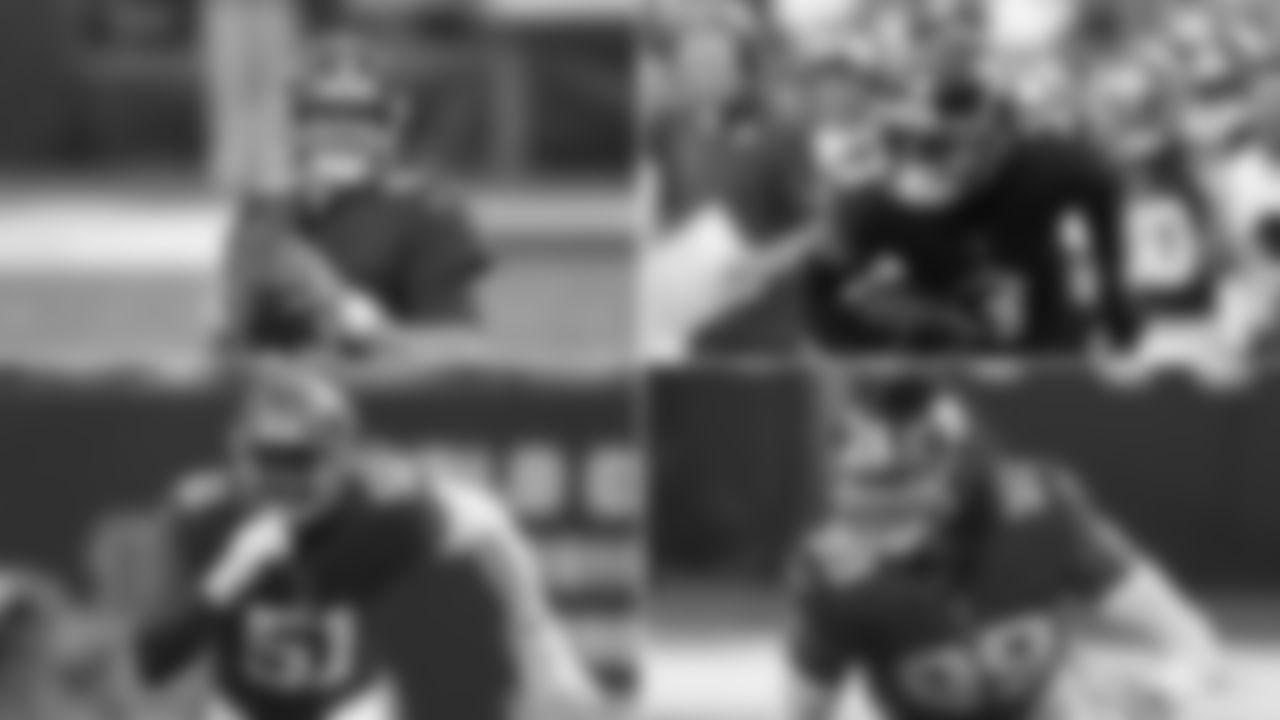
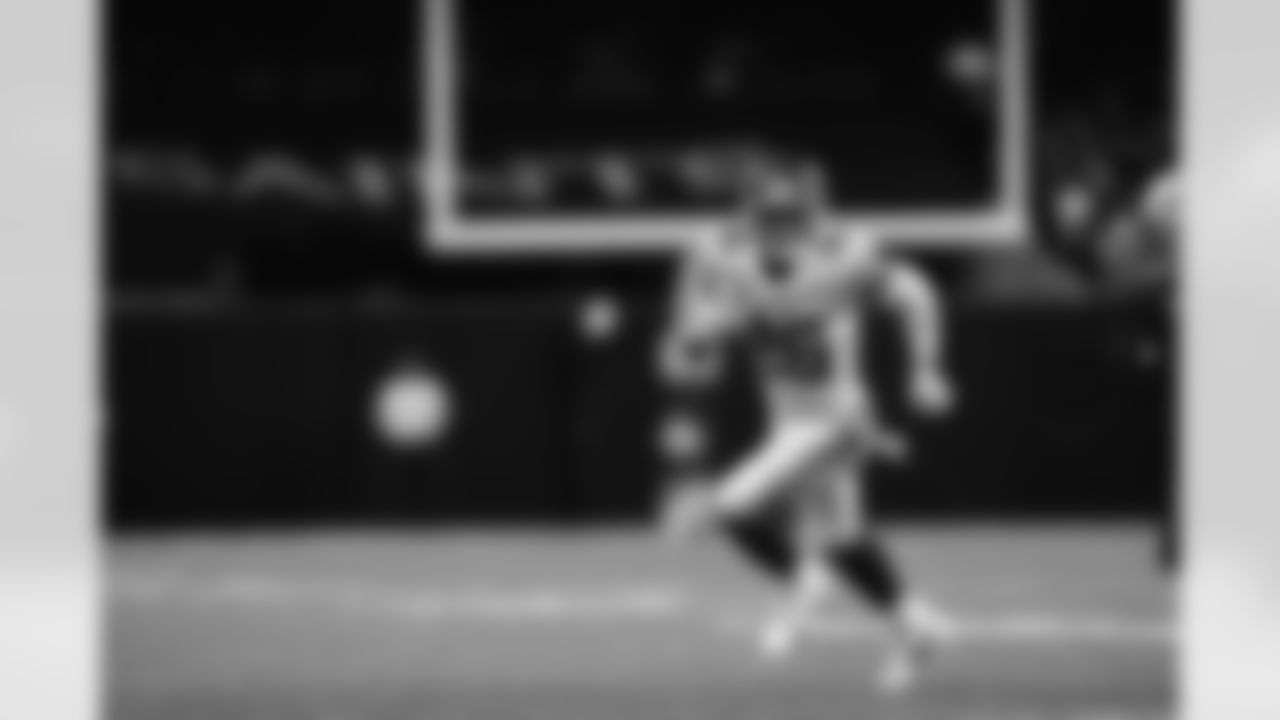
RB Saquon Barkley

RB Devontae Booker

CB James Bradberry
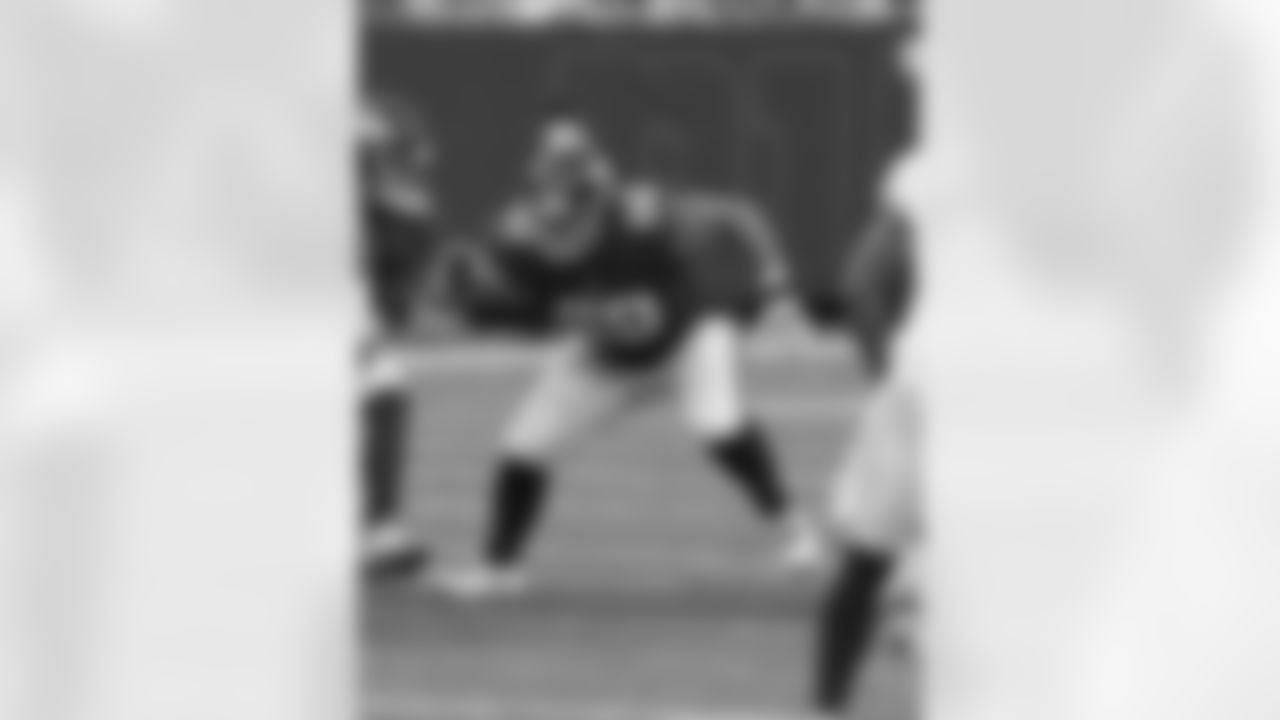
G Ben Bredeson

RB Gary Brightwell
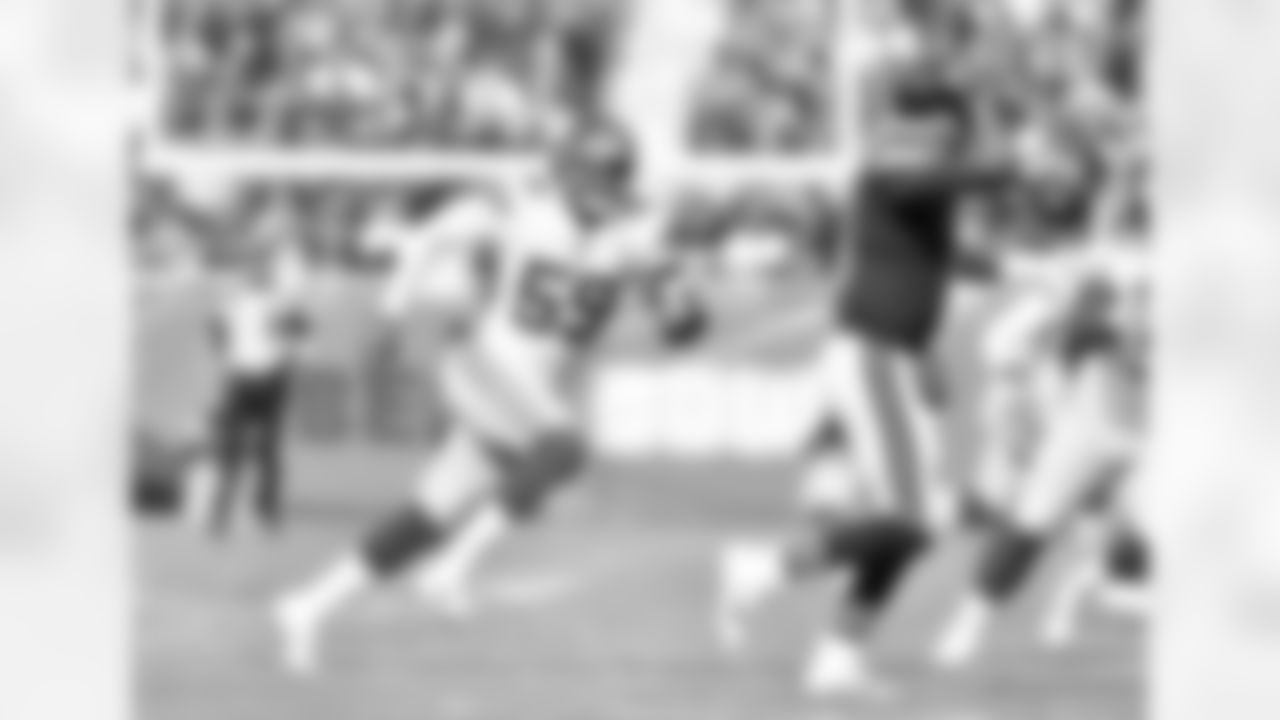
LB Lorenzo Carter
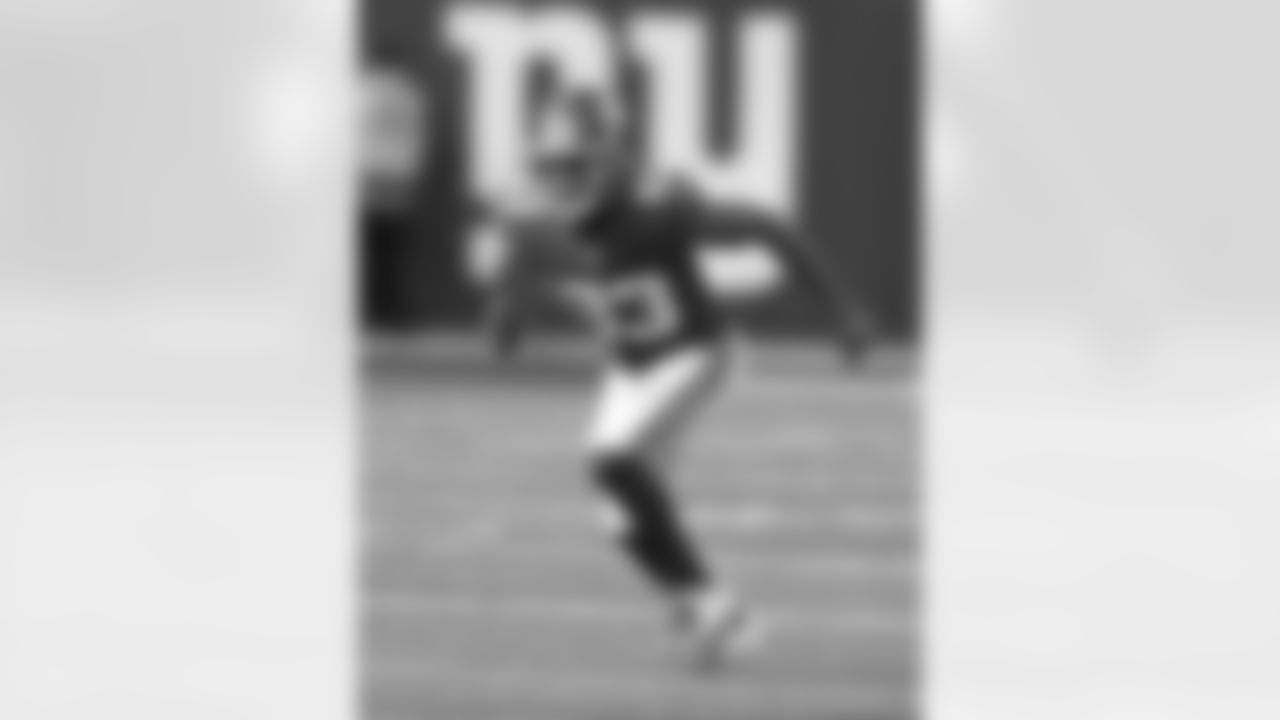
WR Pharoh Cooper
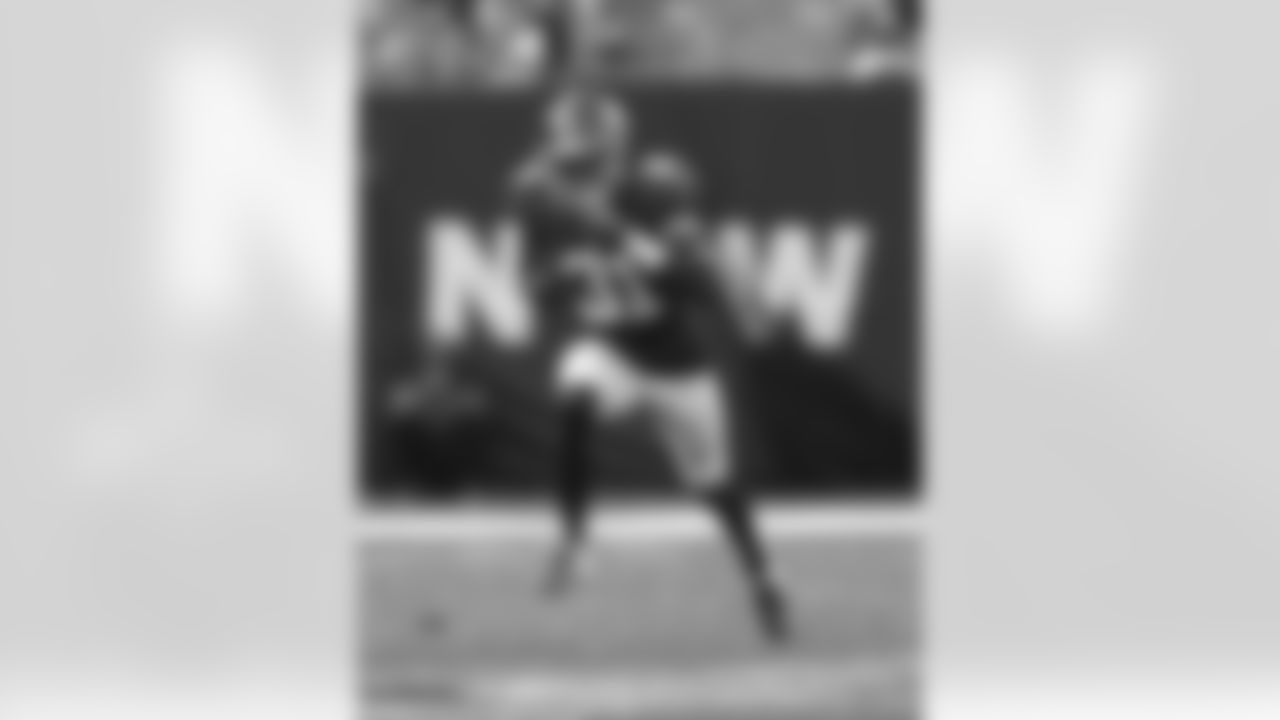
DB Keon Crossen
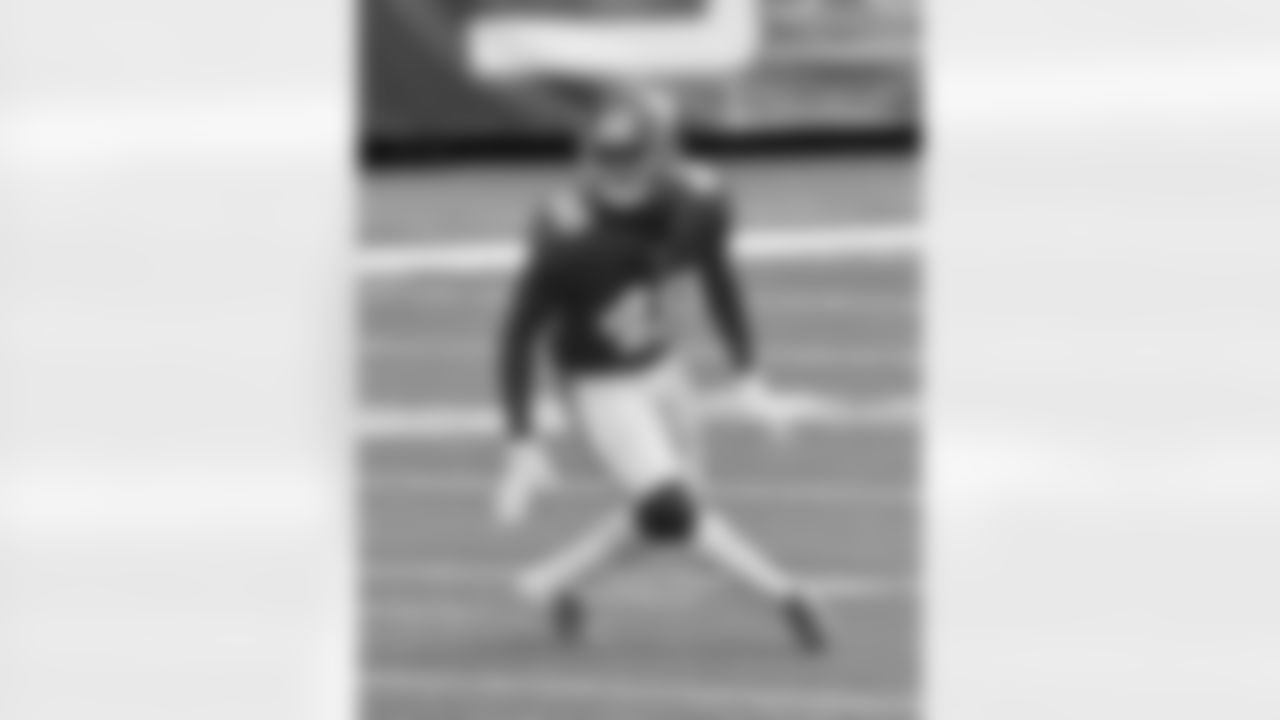
LB Tae Crowder

OT Korey Cunningham

P Riley Dixon
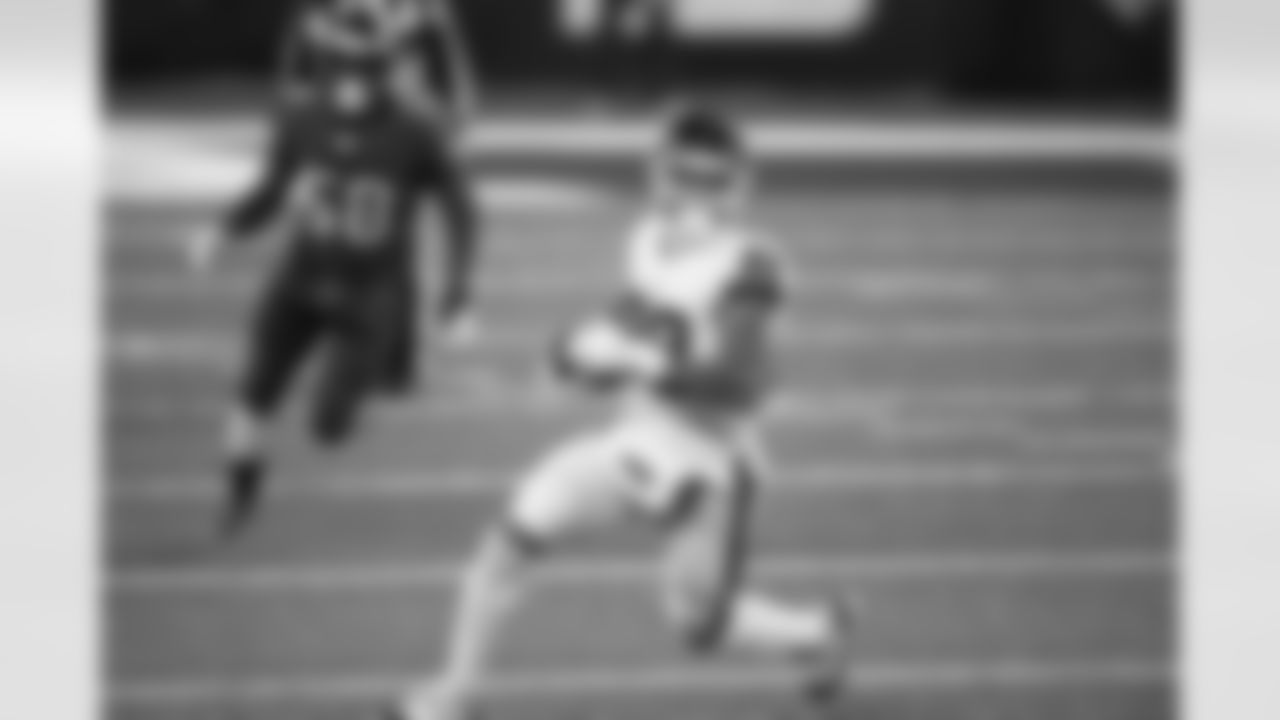
TE Evan Engram

QB Jake Fromm
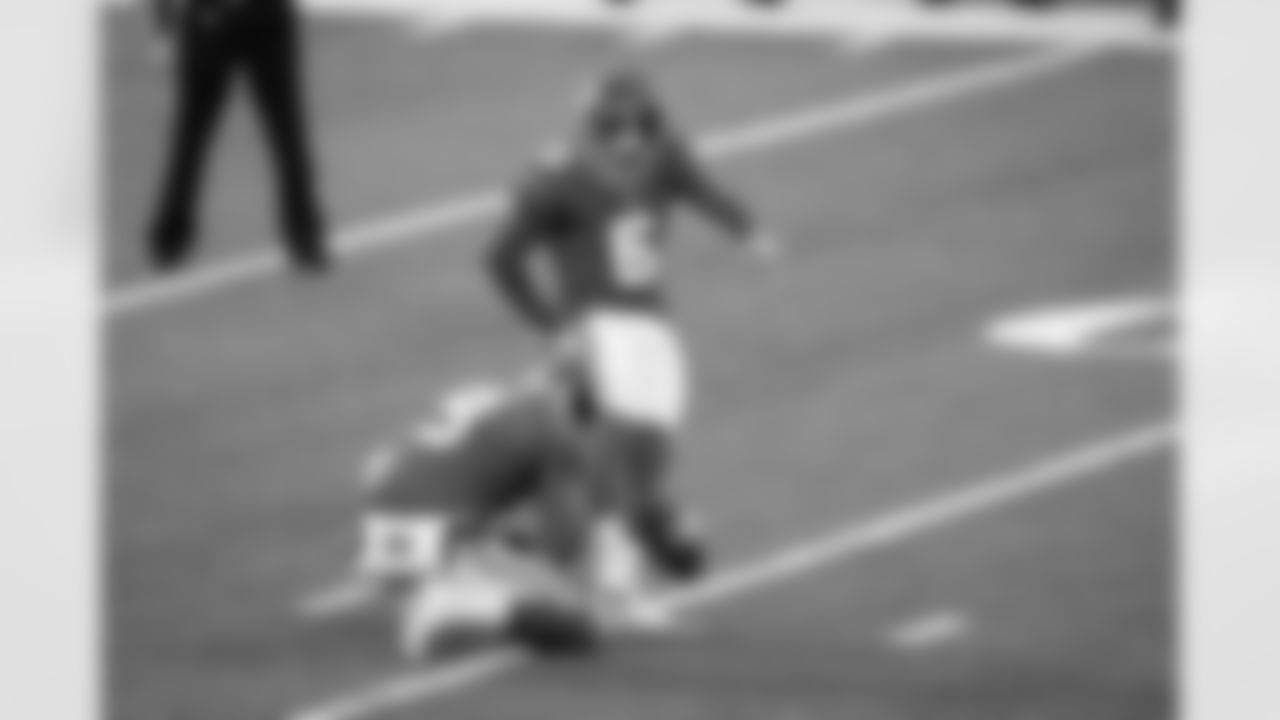
K Graham Gano
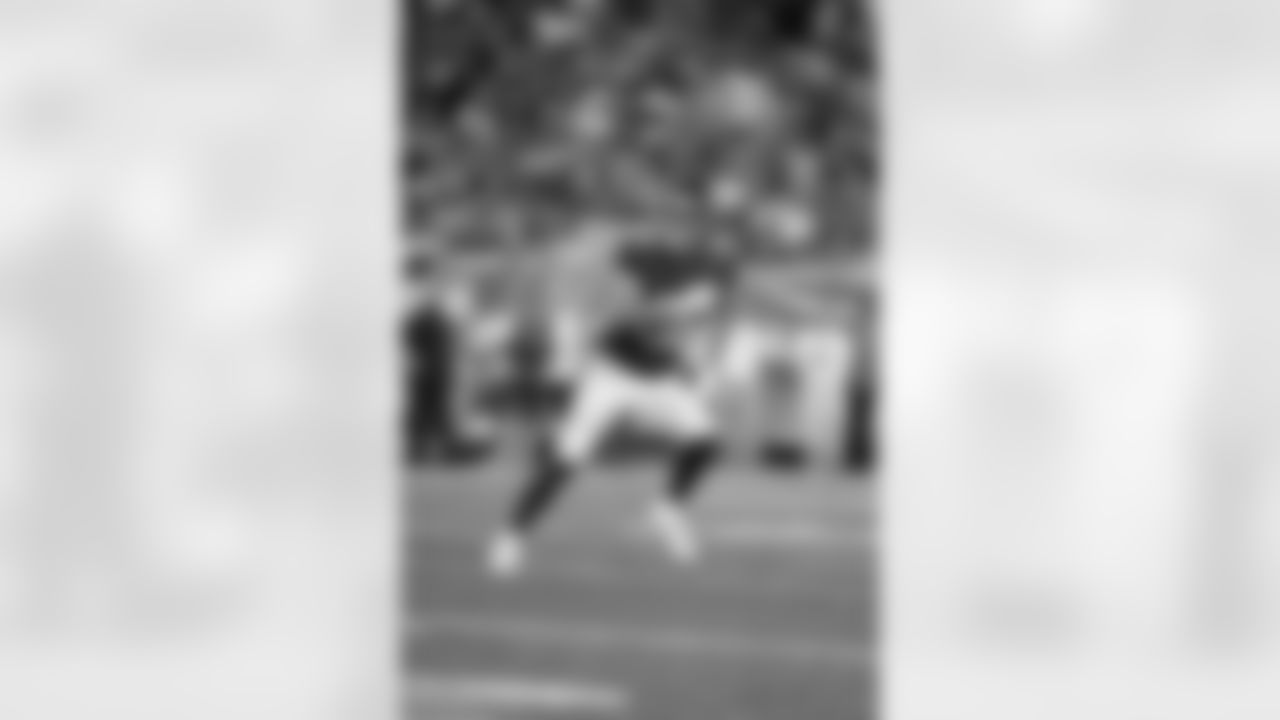
FB Cullen Gillaspia

QB Mike Glennon

WR Kenny Golladay
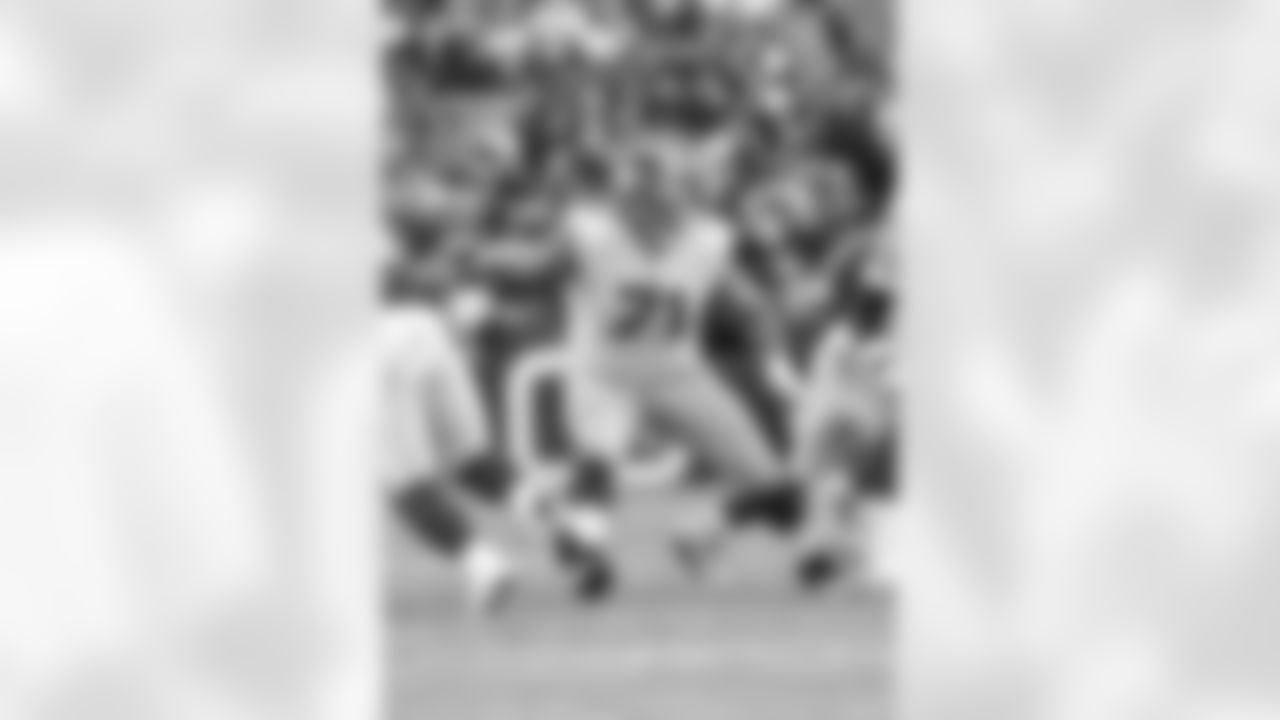
G Will Hernandez
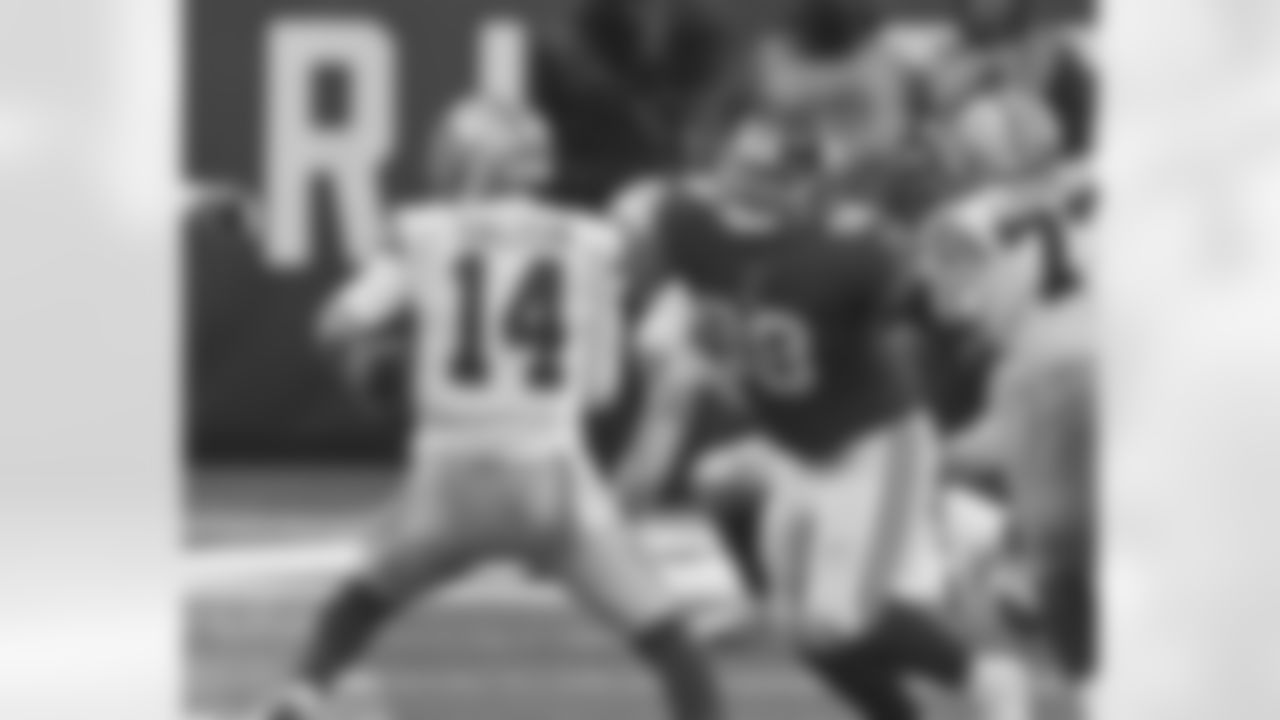
DT Austin Johnson

WR Collin Johnson
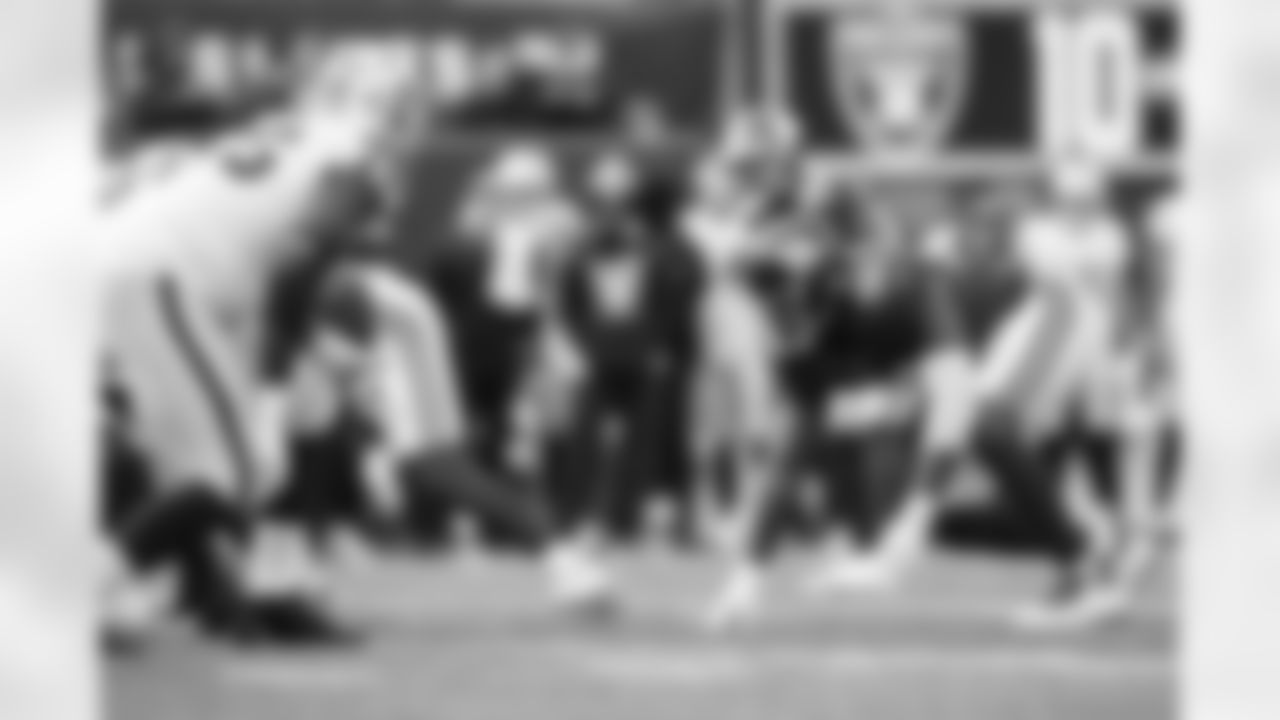
DL Raymond Johnson III
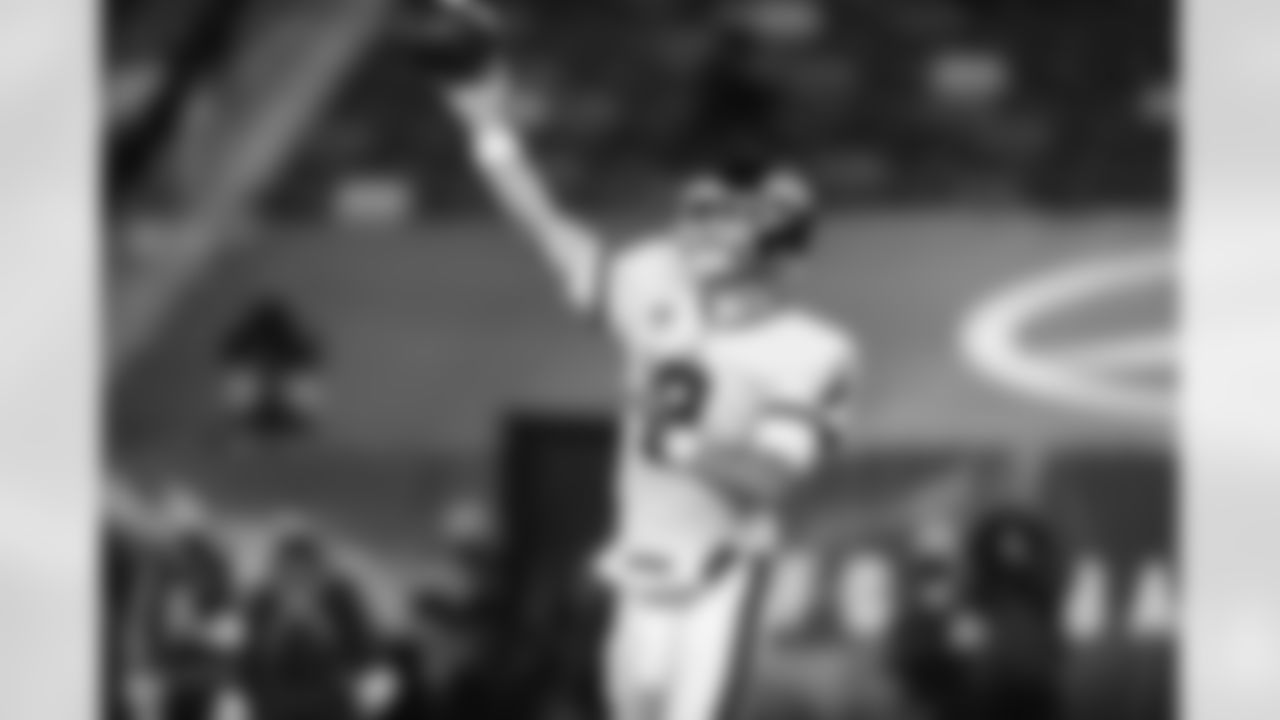
QB Daniel Jones
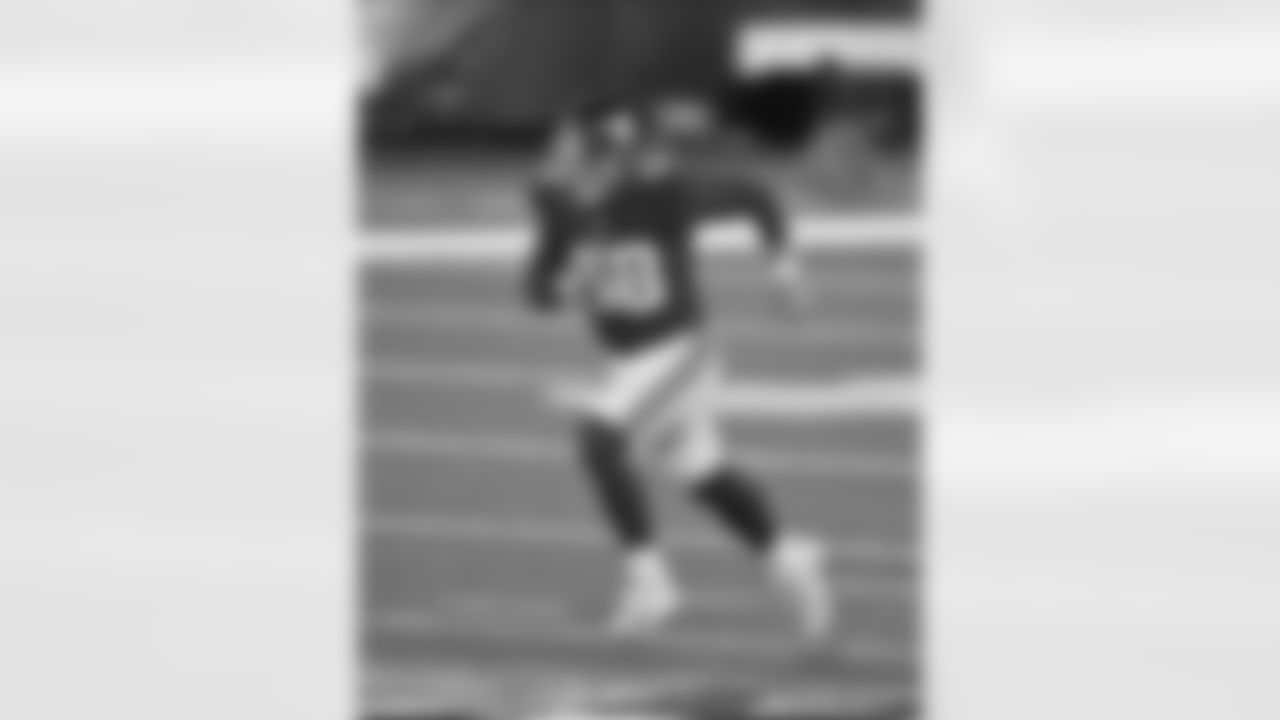
LS Casey Kreiter
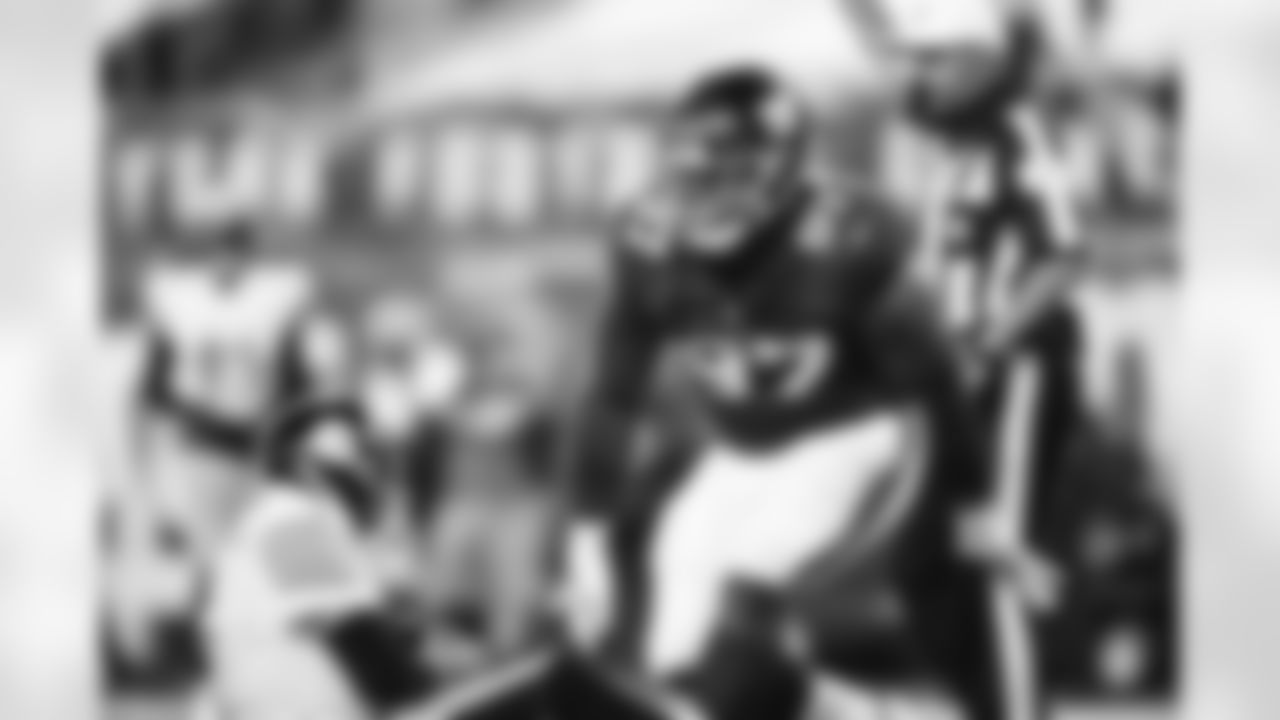
DL Dexter Lawrence
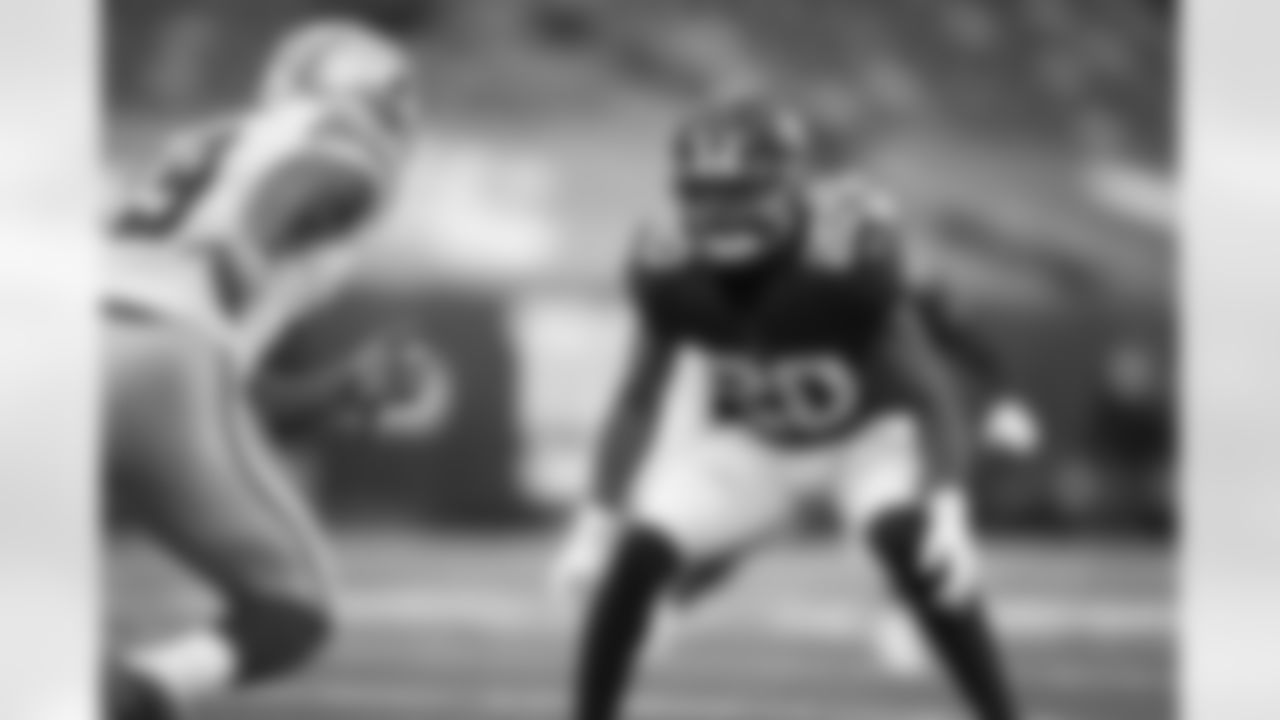
DB Julian Love
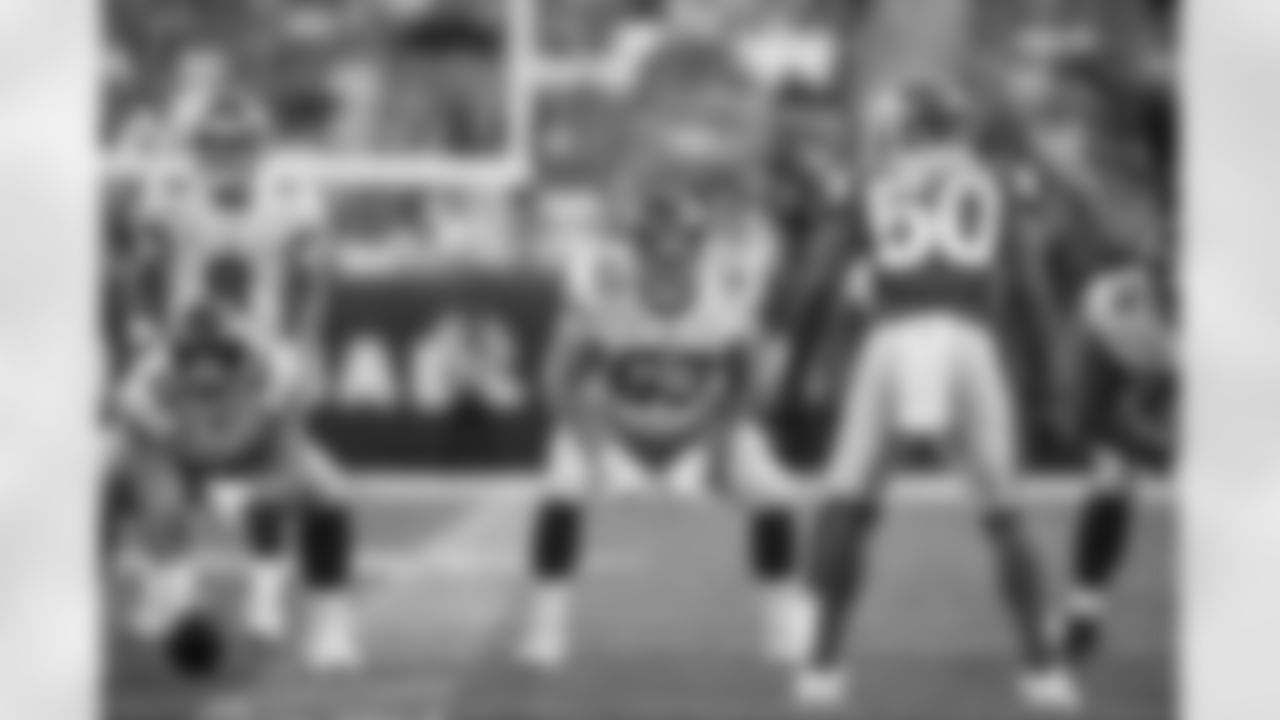
G Wes Martin
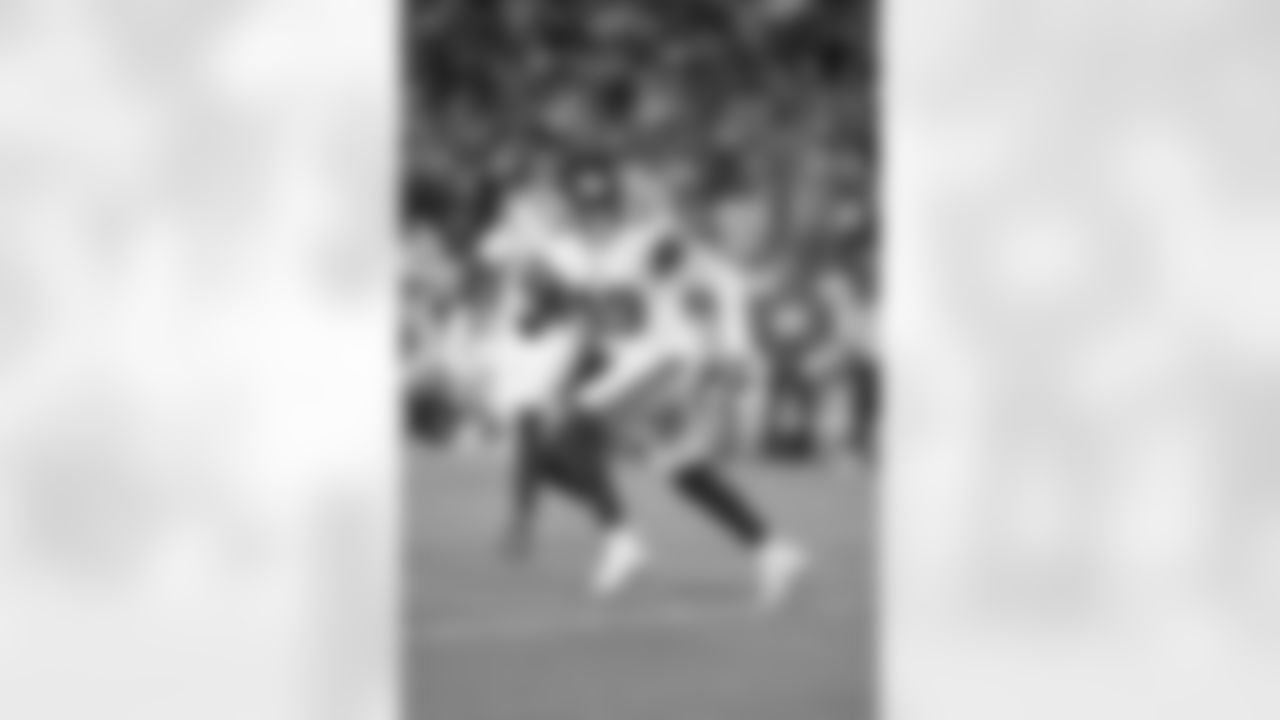
LB Benardrick McKinney
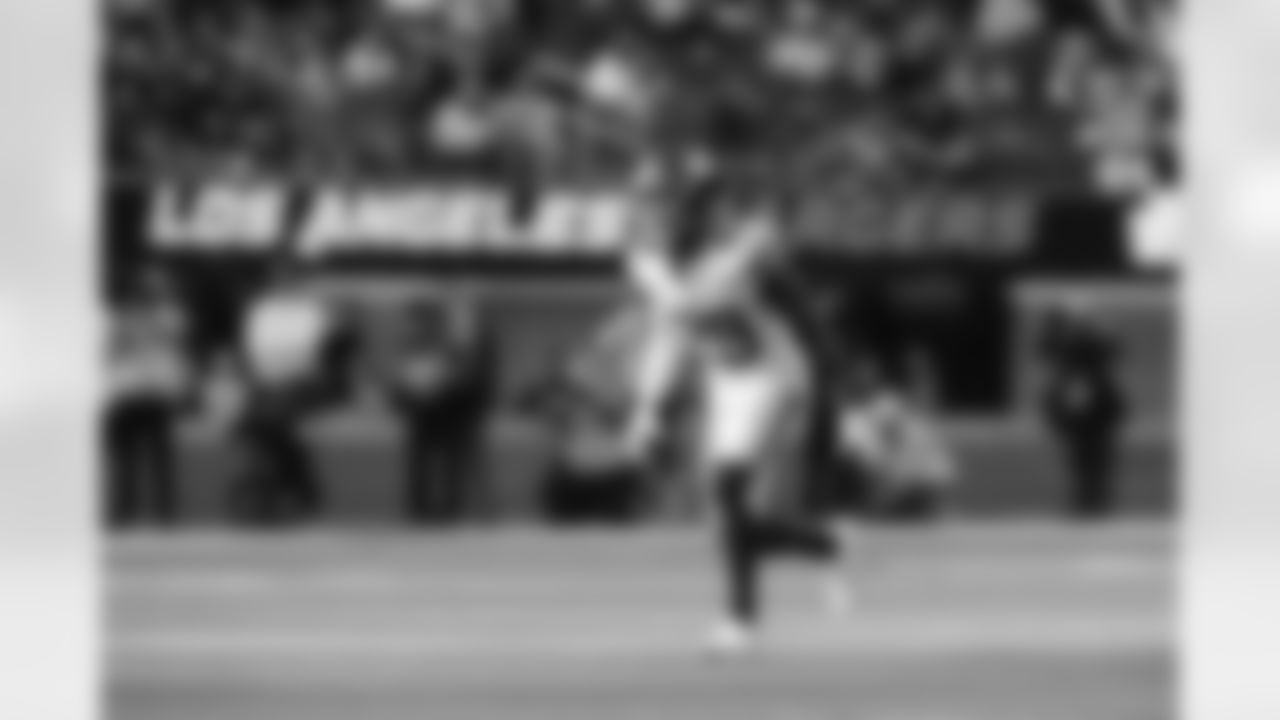
S Xavier McKinney

TE Chris Myarick
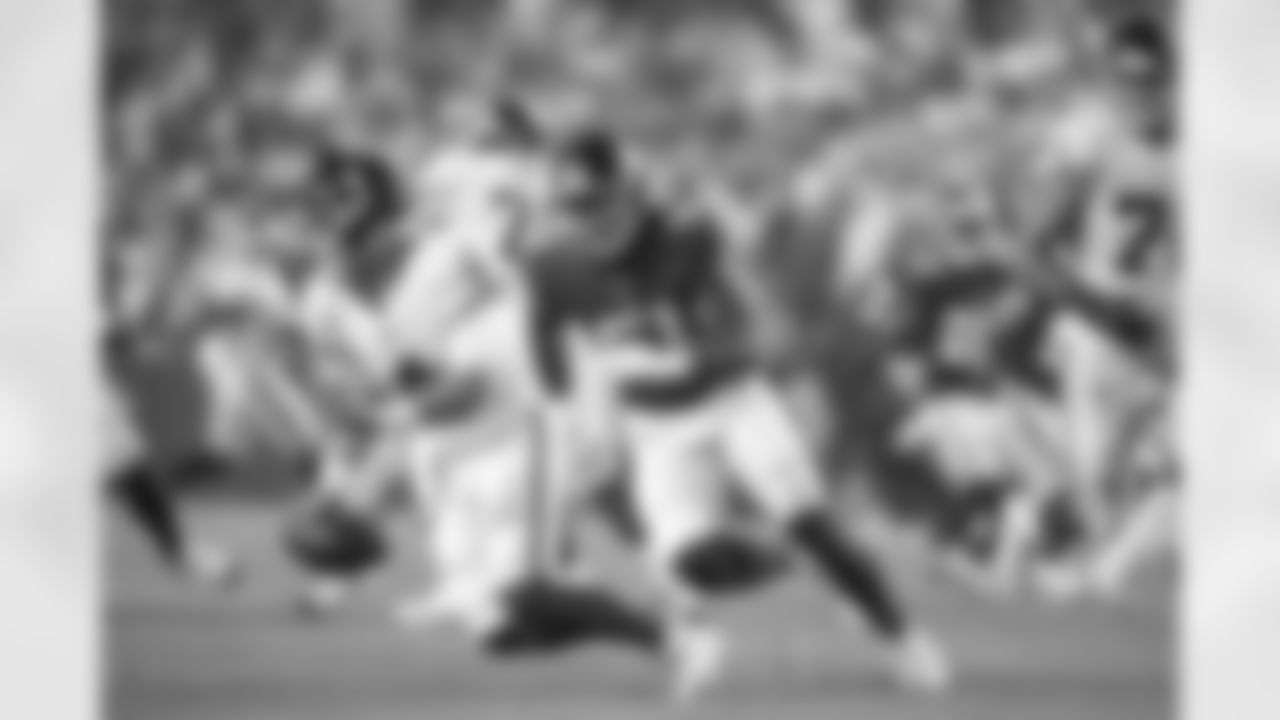
LB Azeez Ojulari
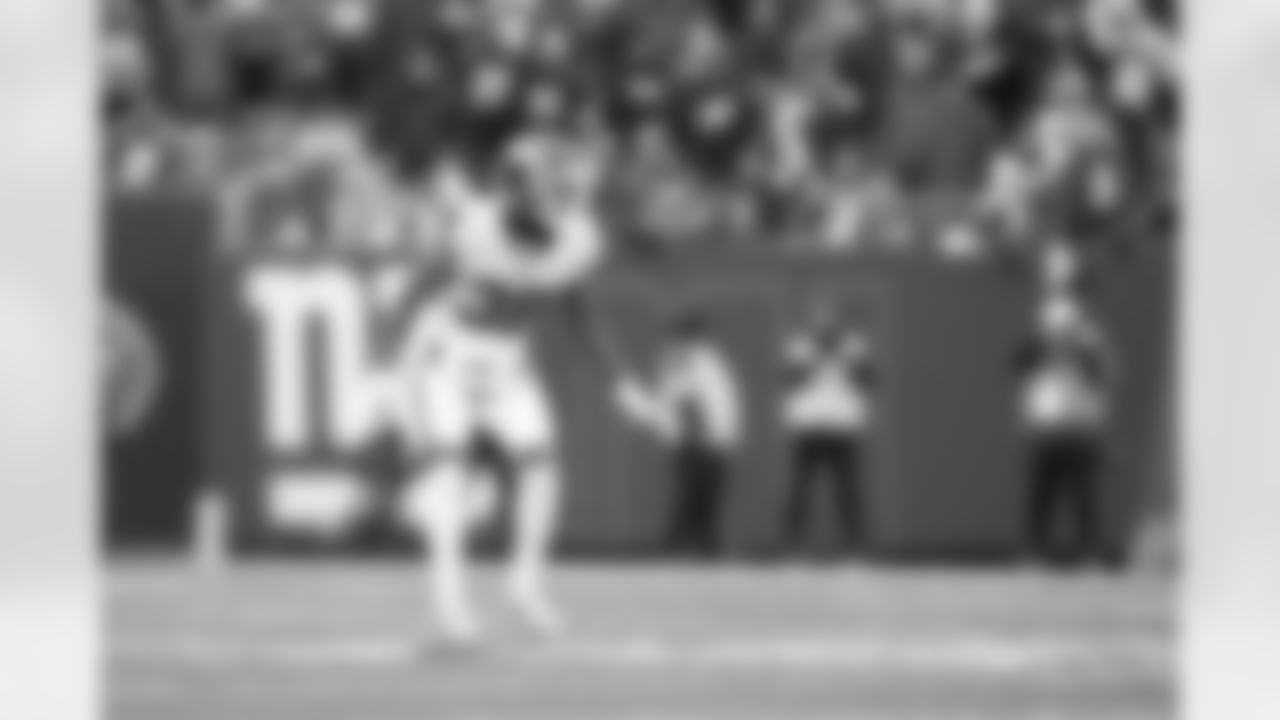
DB Steven Parker
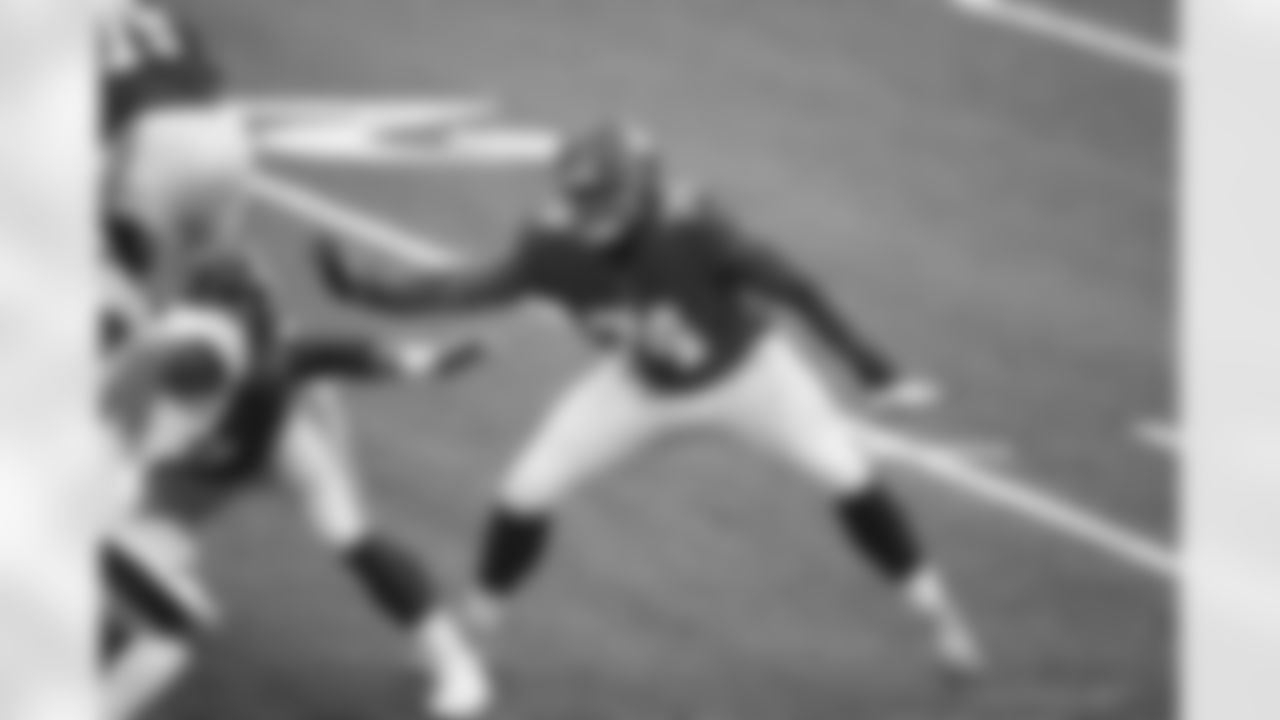
OT Matt Peart
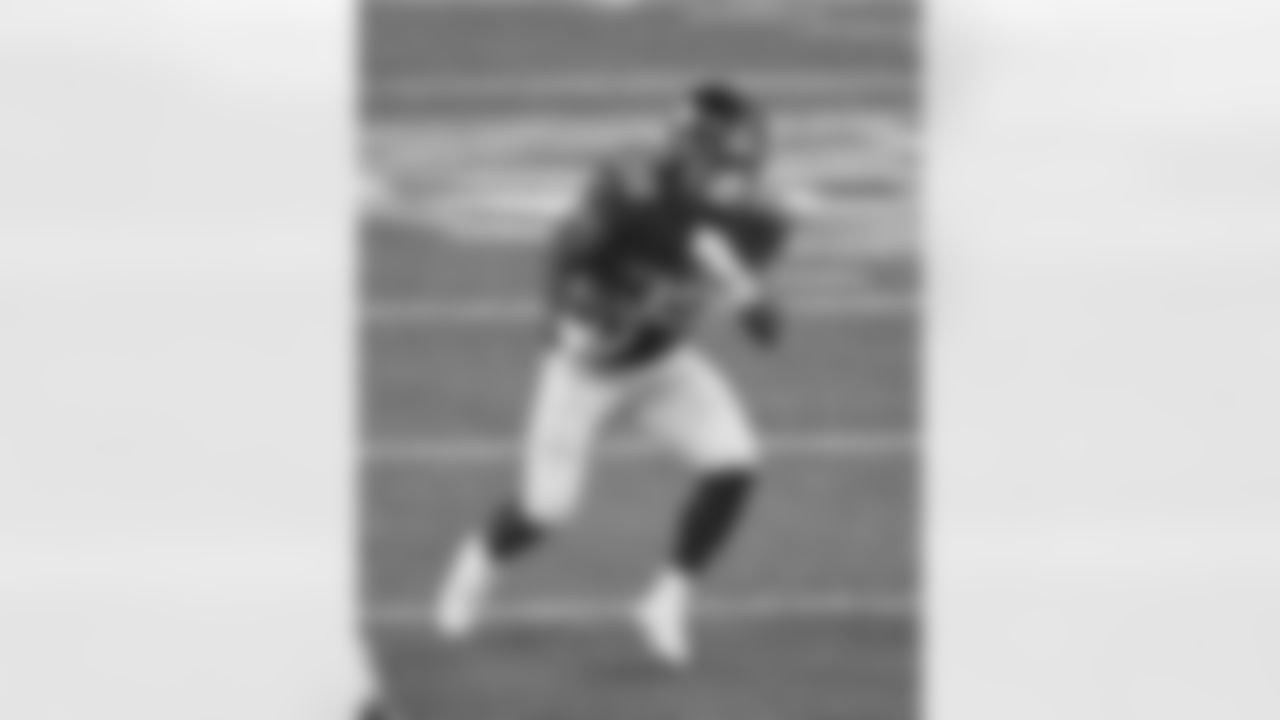
FB Elijhaa Penny
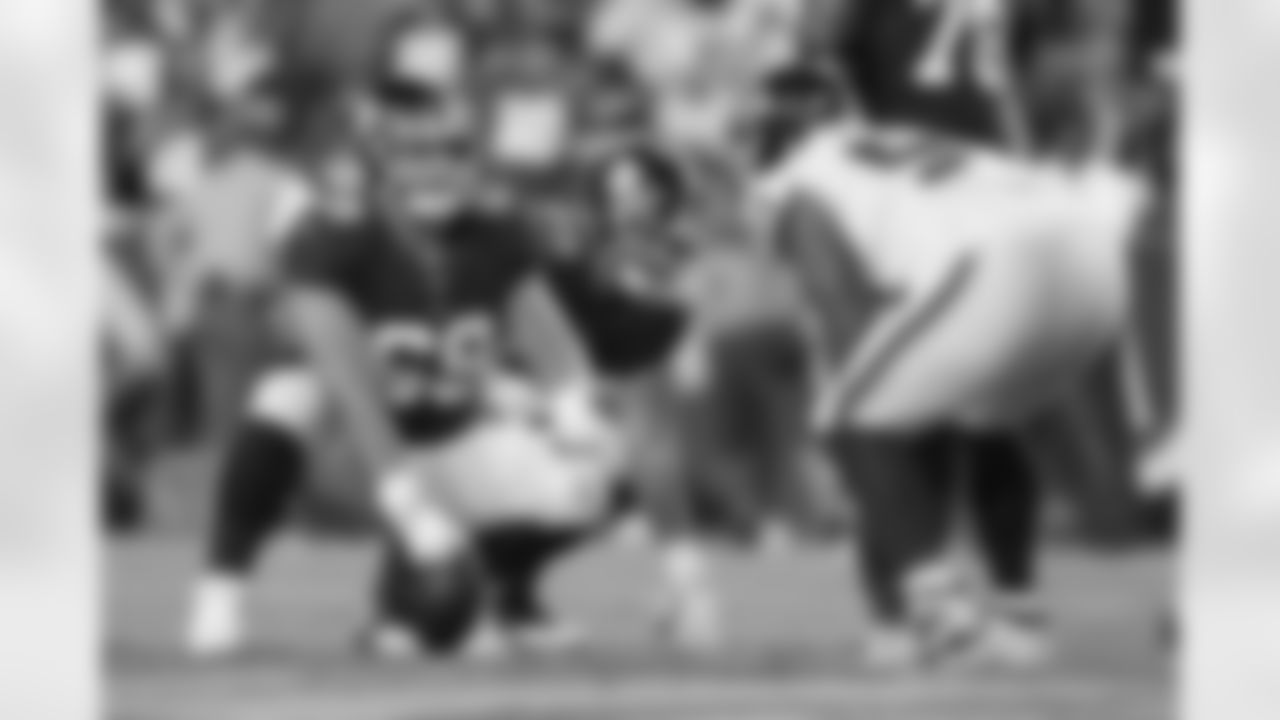
C Billy Price
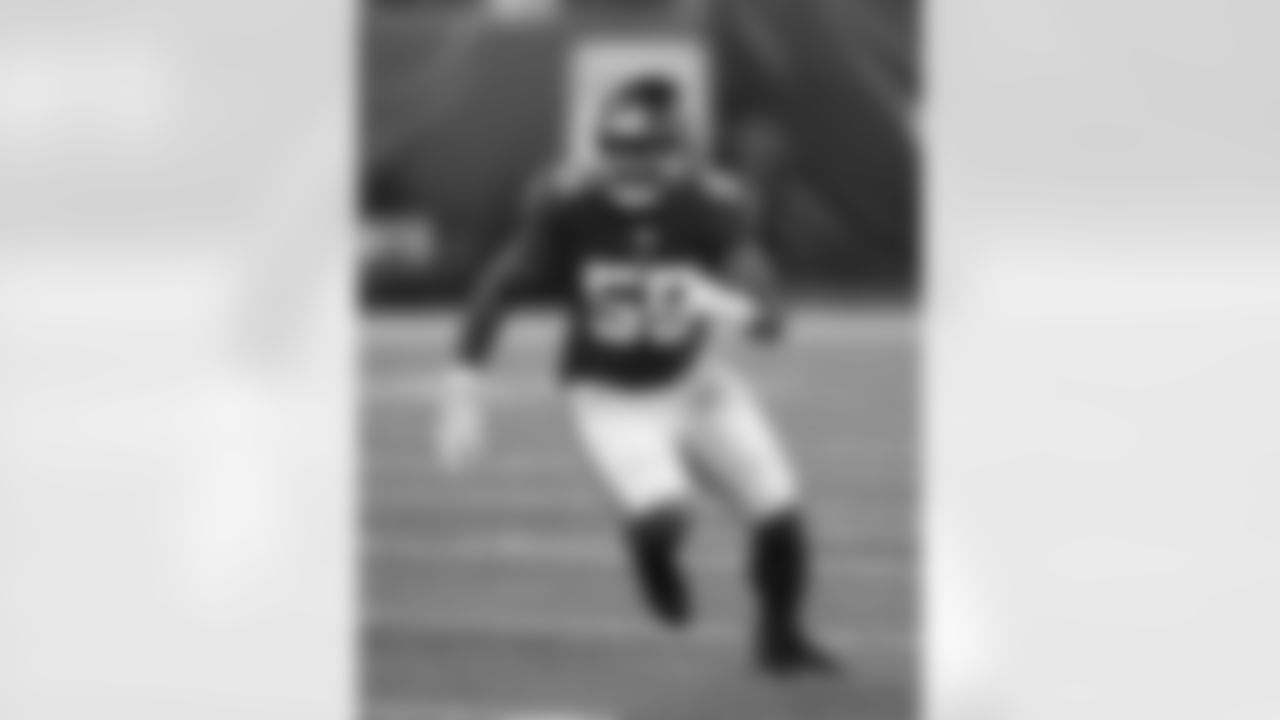
LB Reggie Ragland
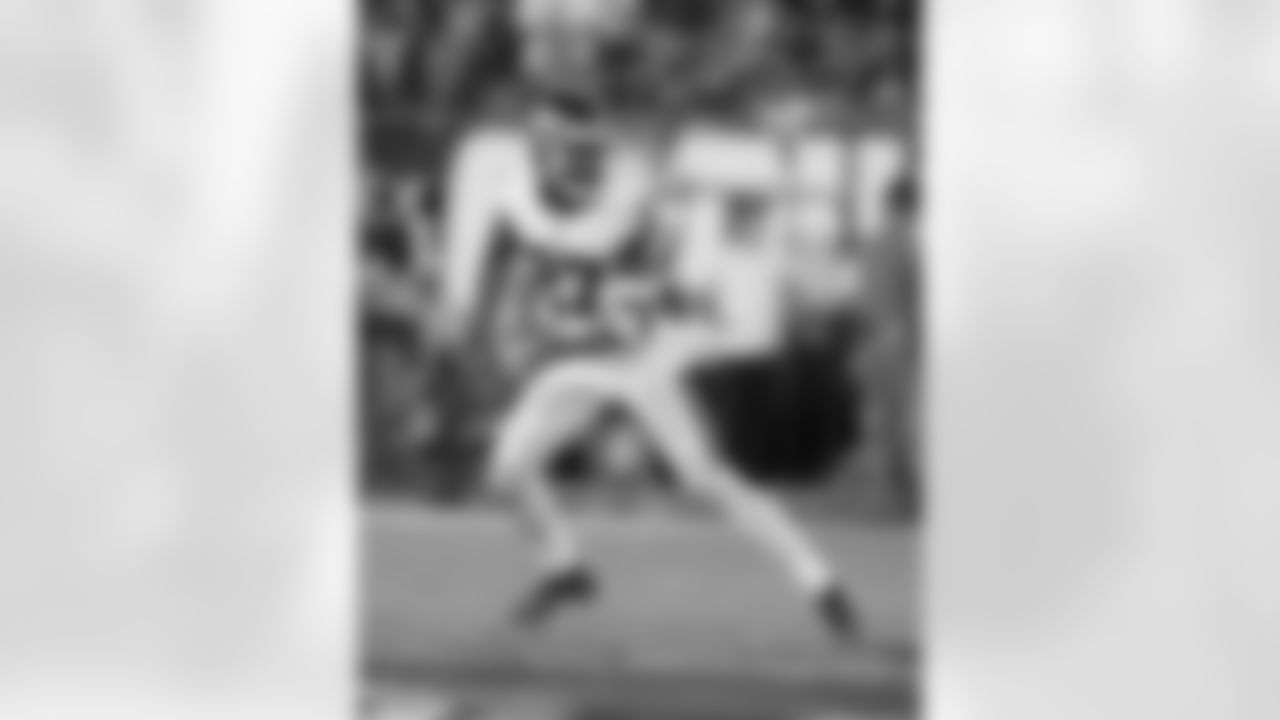
DB J.R. Reed
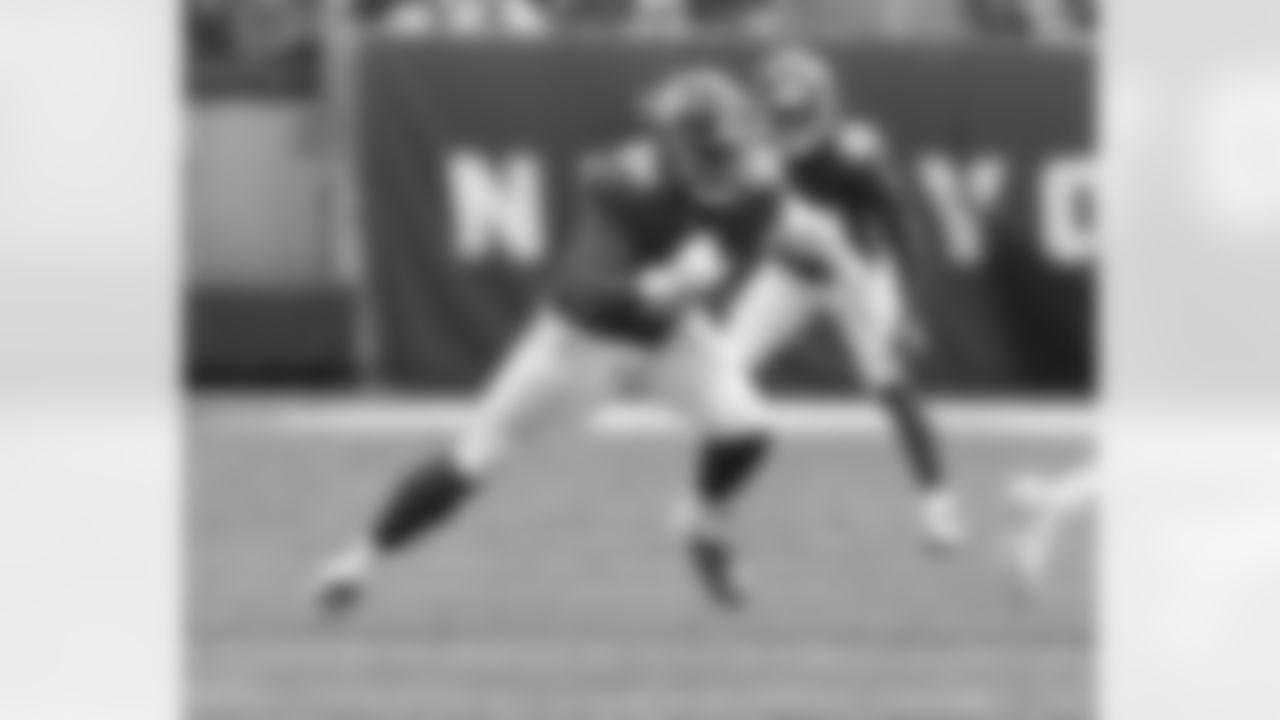
LB Quincy Roche
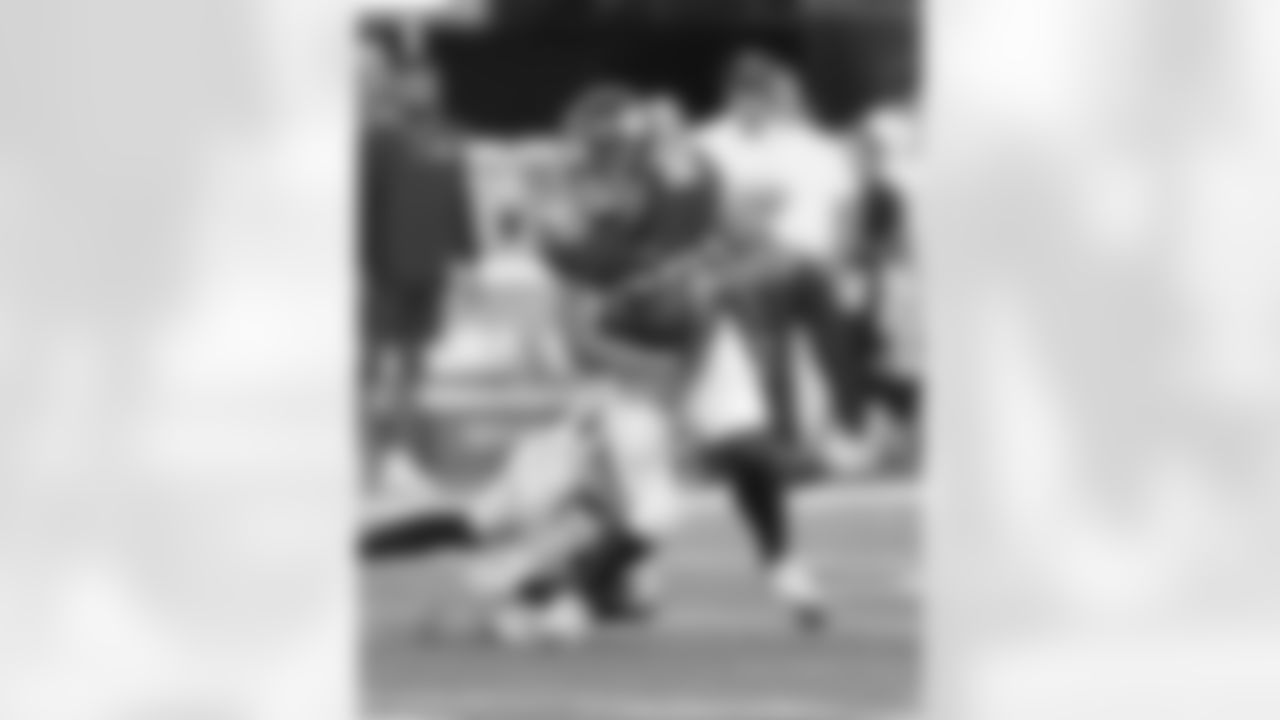
TE Kyle Rudolph
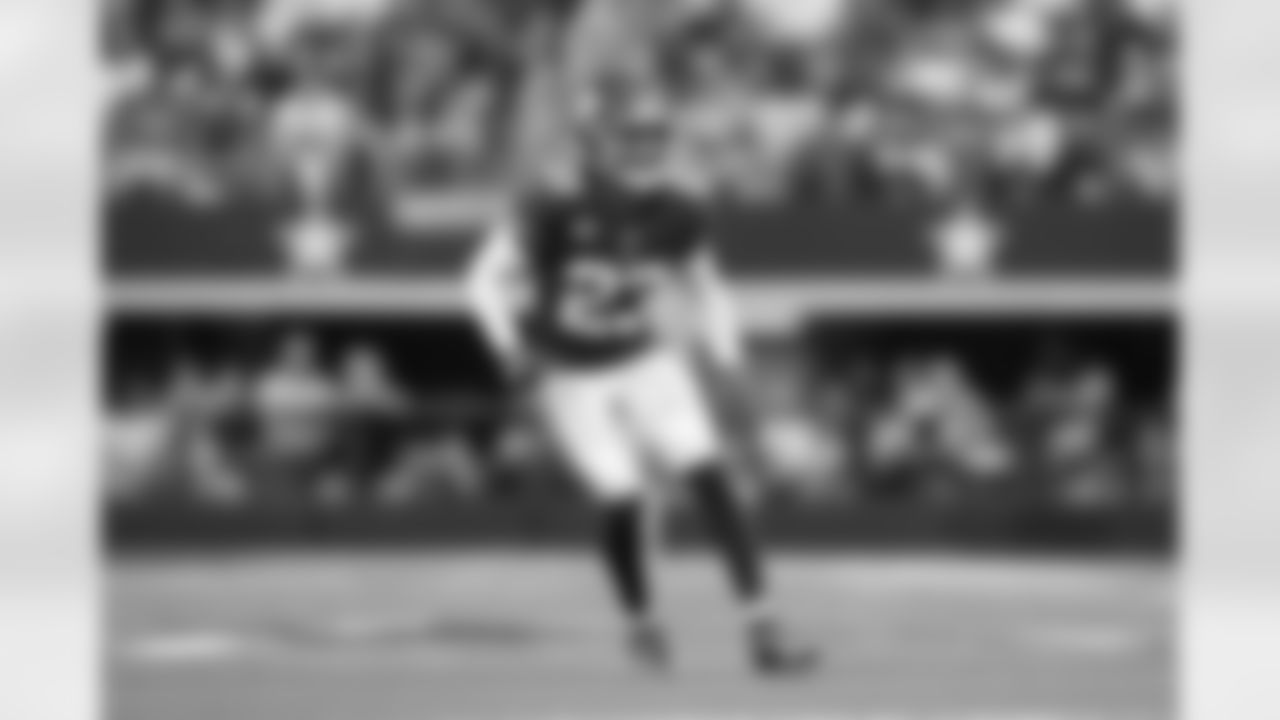
DB Logan Ryan

DT Danny Shelton
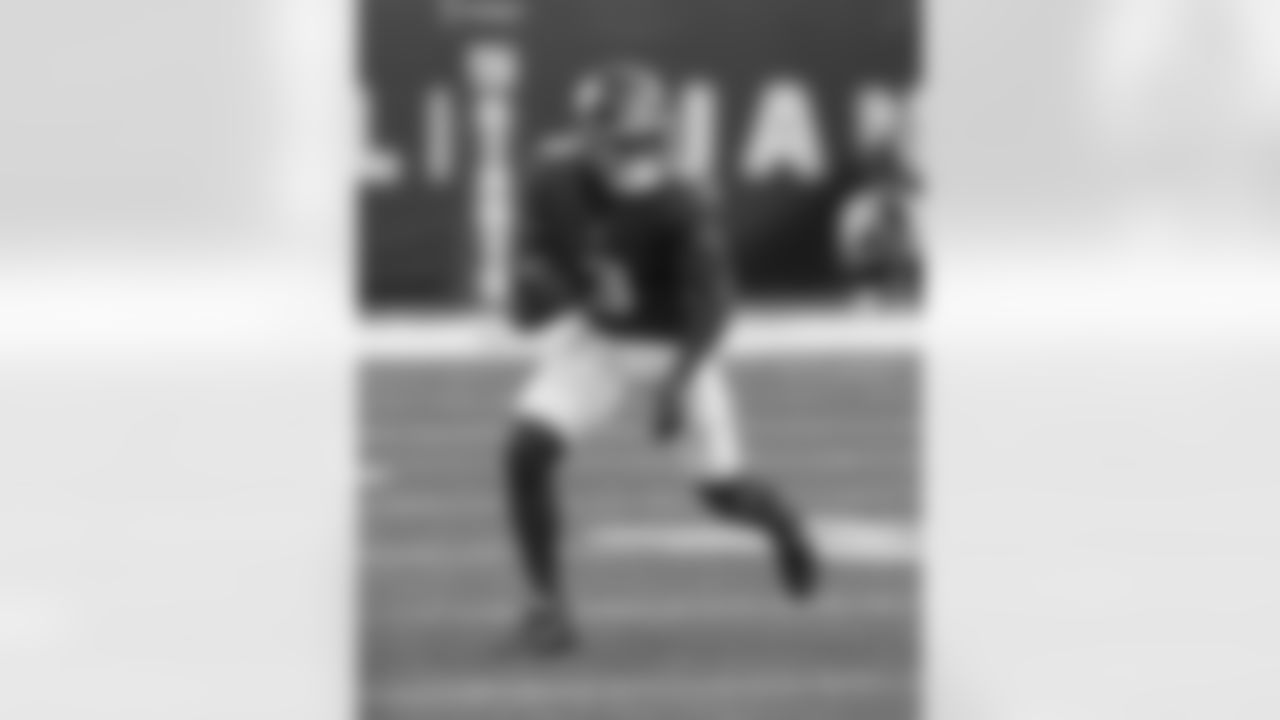
WR Sterling Shepard
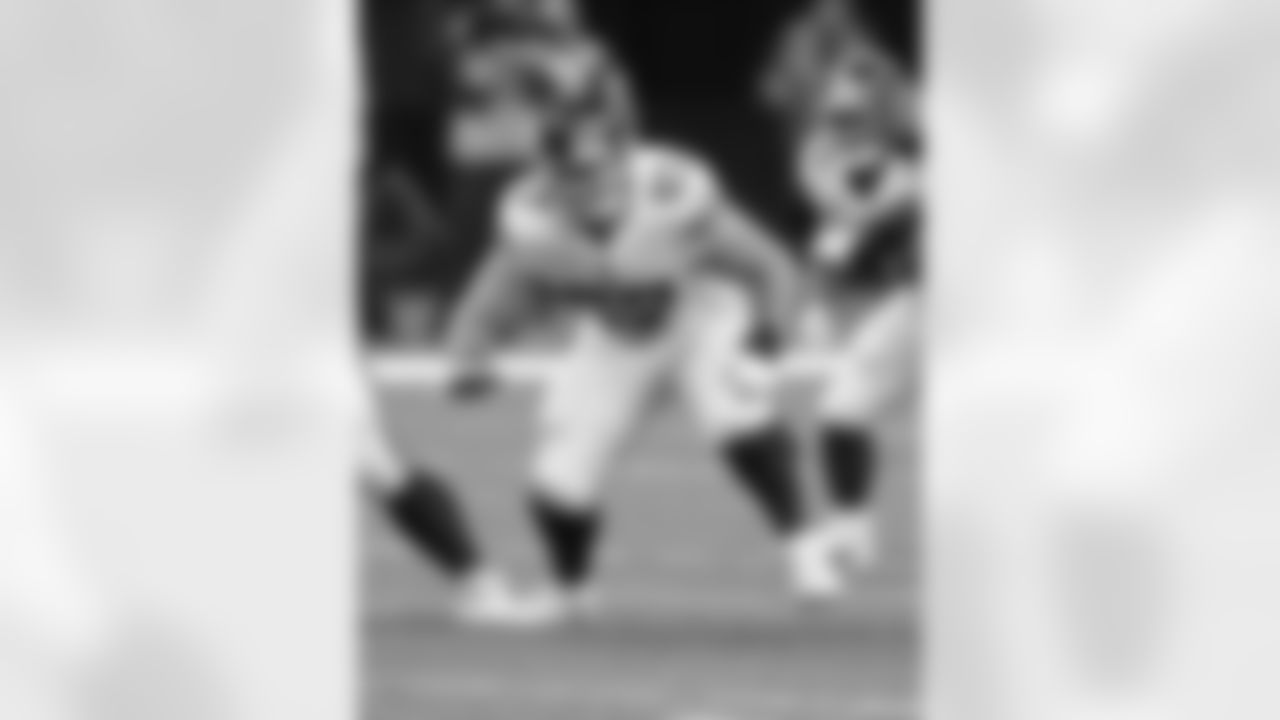
OL Matt Skura
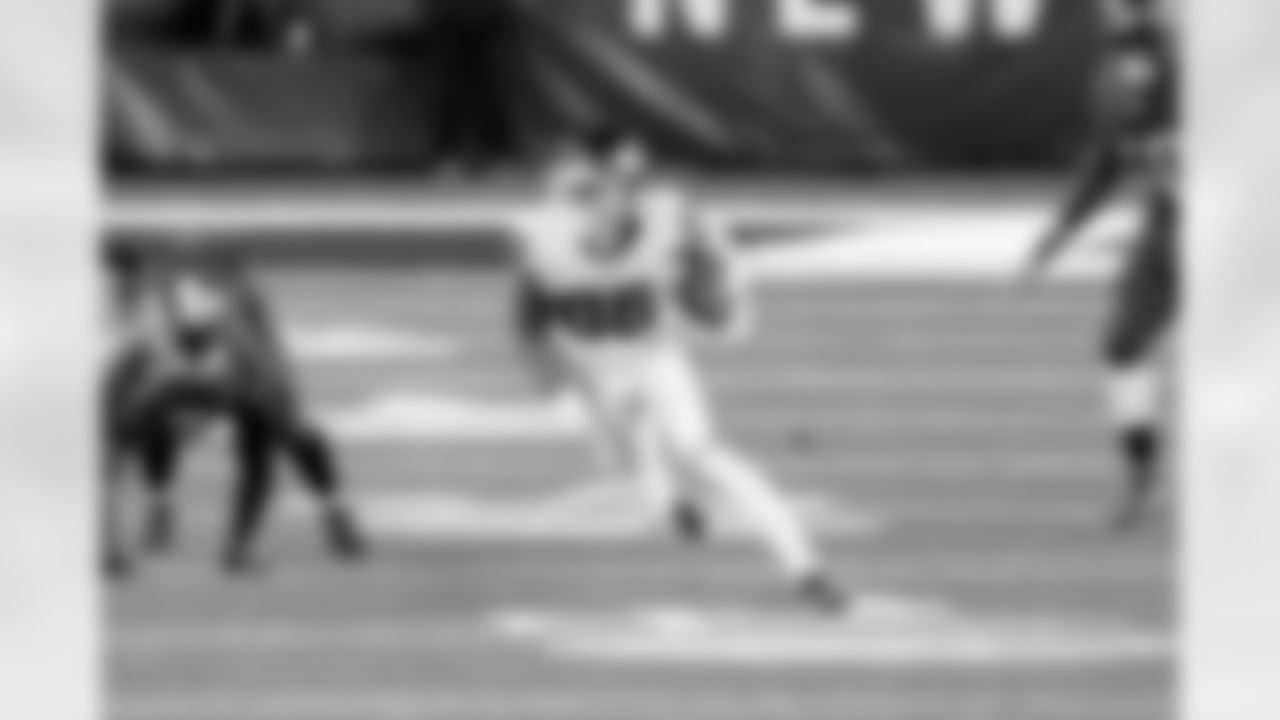
WR Darius Slayton
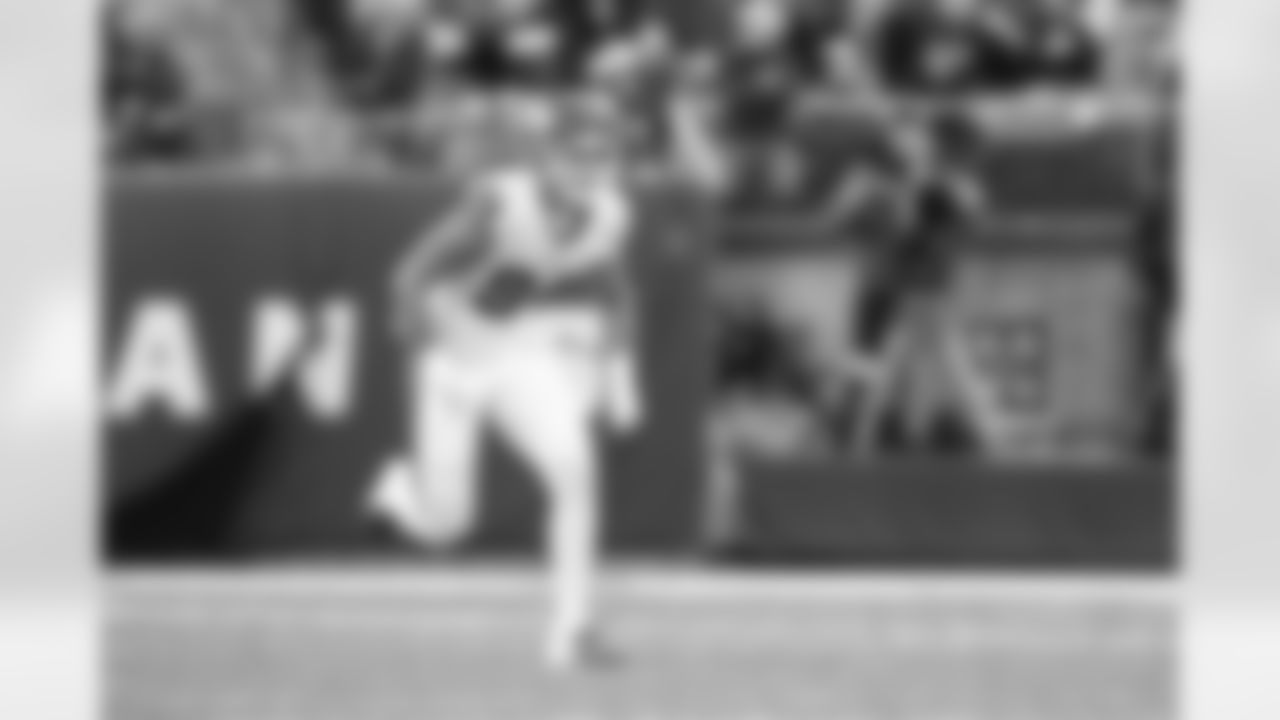
LB Elerson G. Smith

OT Nate Solder

OT Andrew Thomas
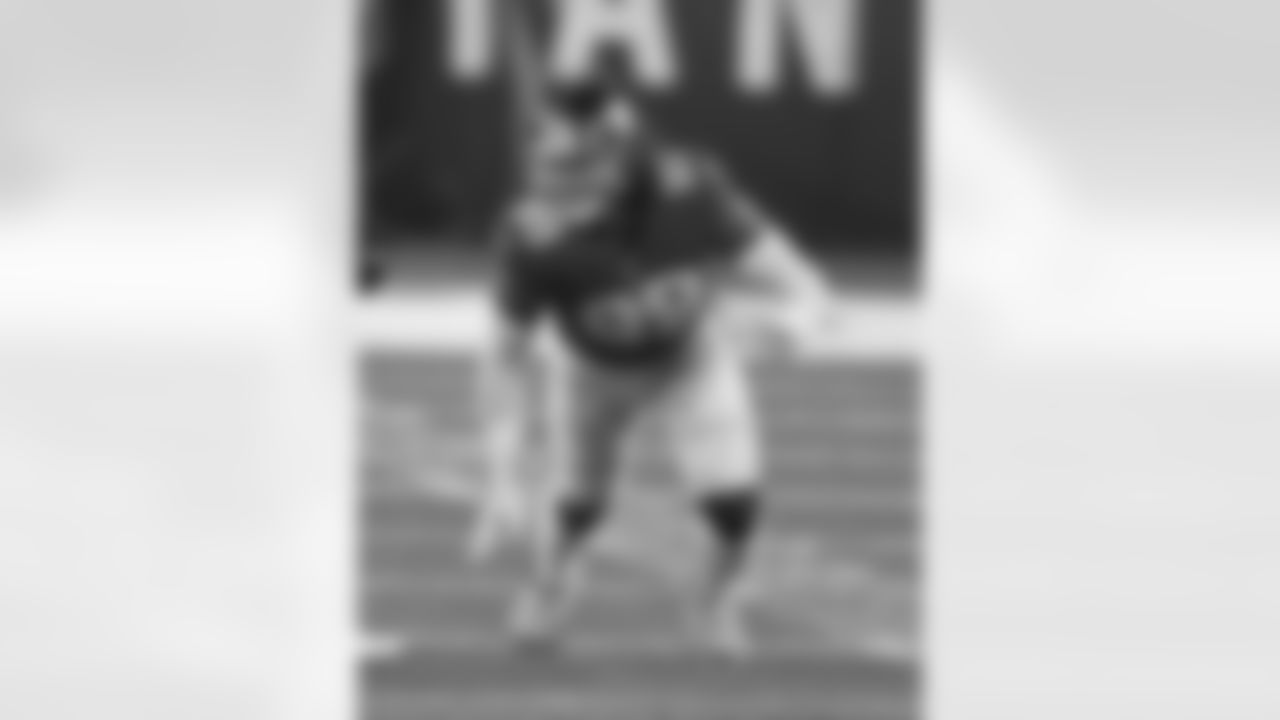
DT Leonard Williams















